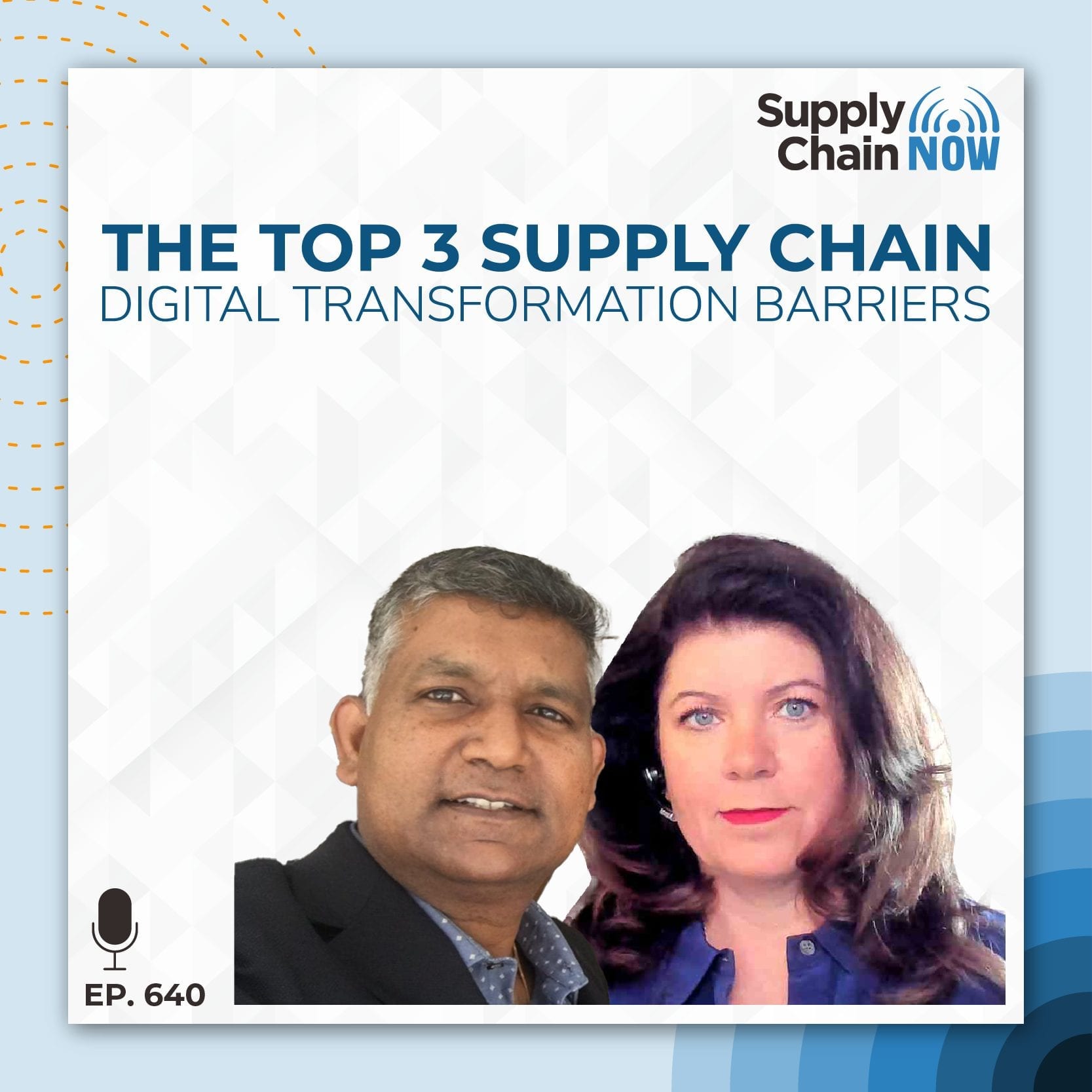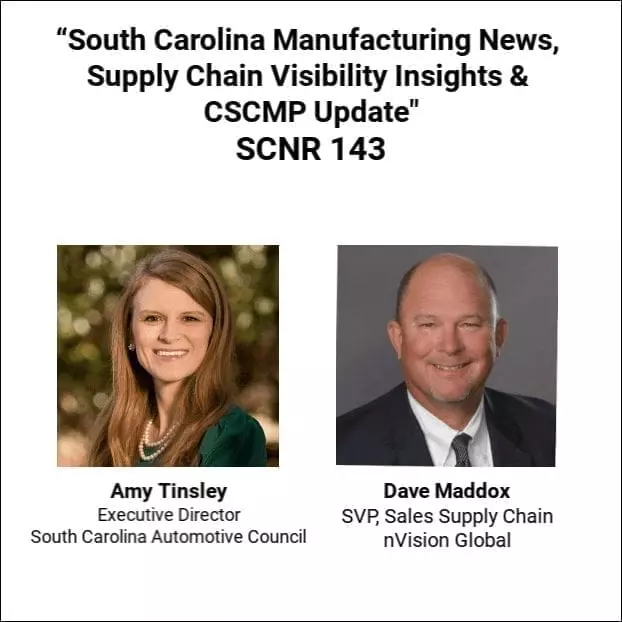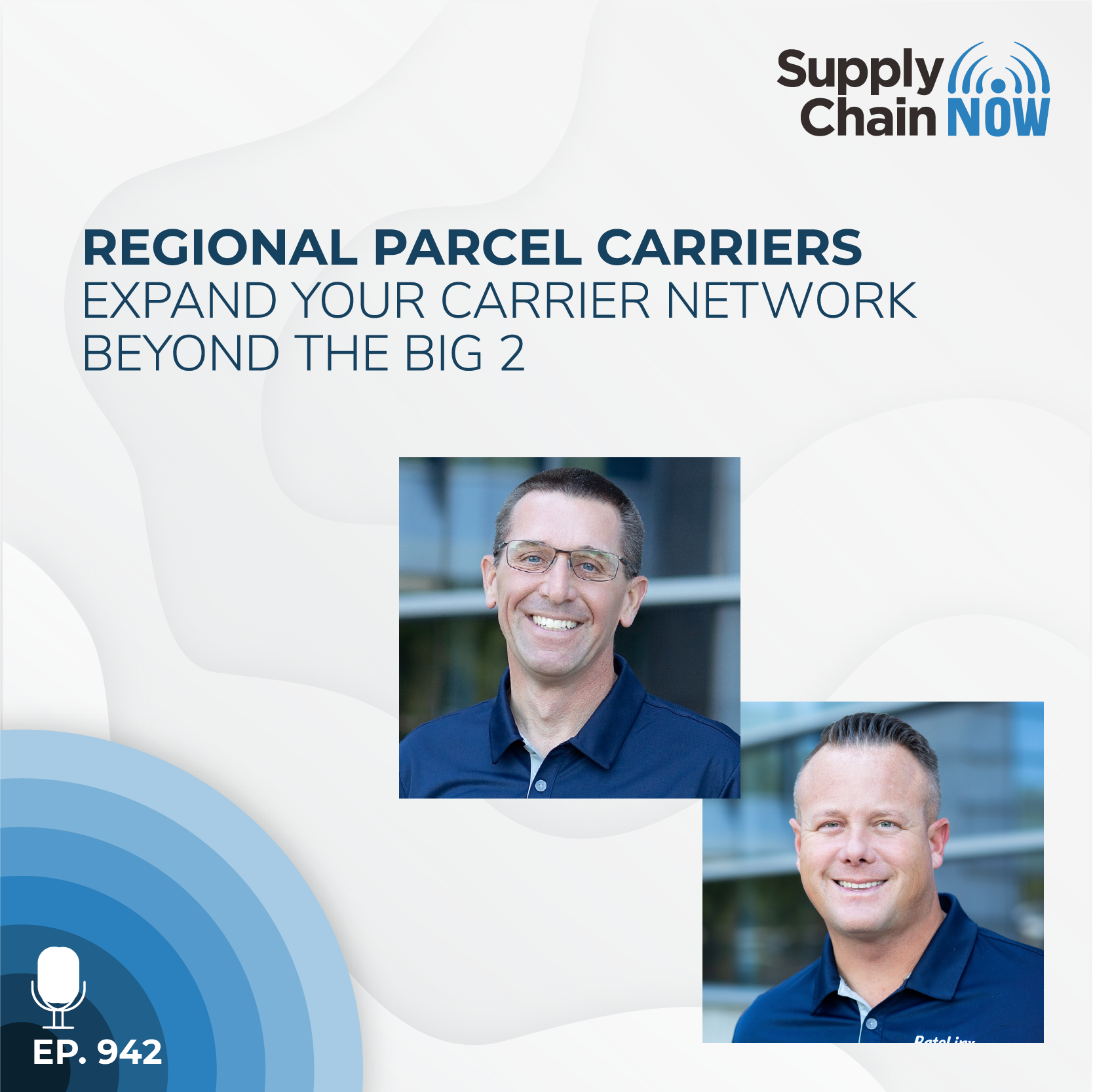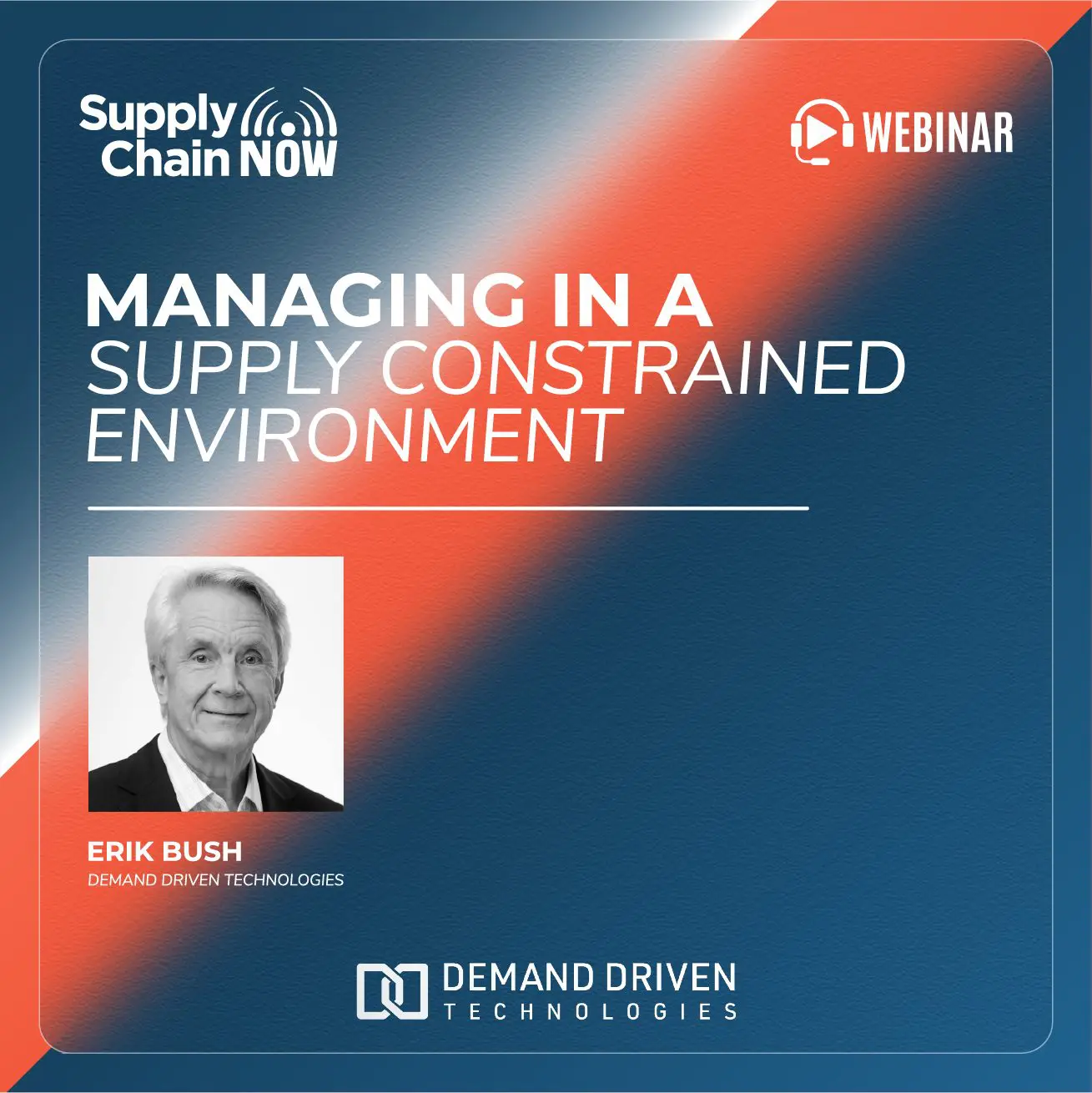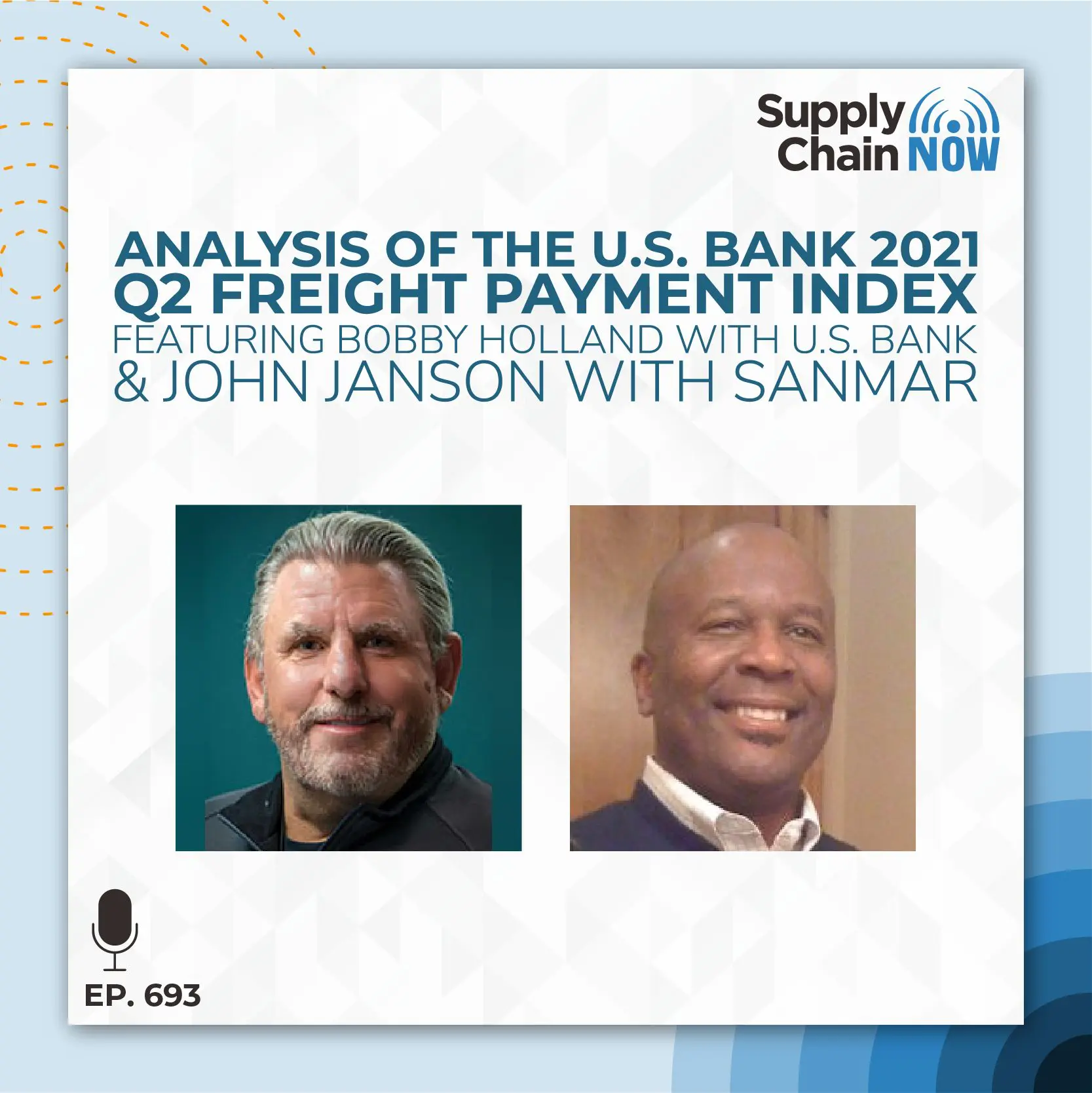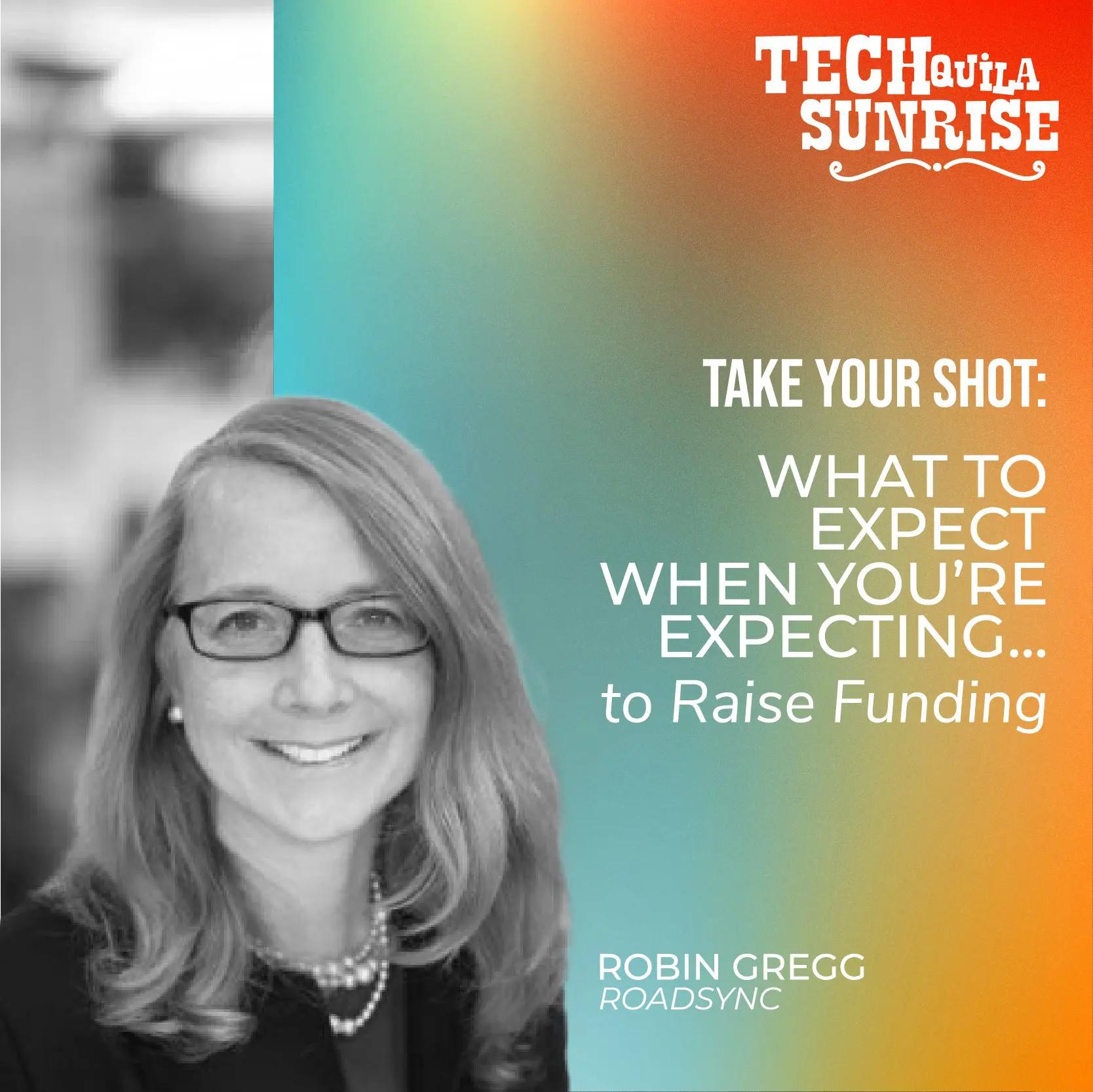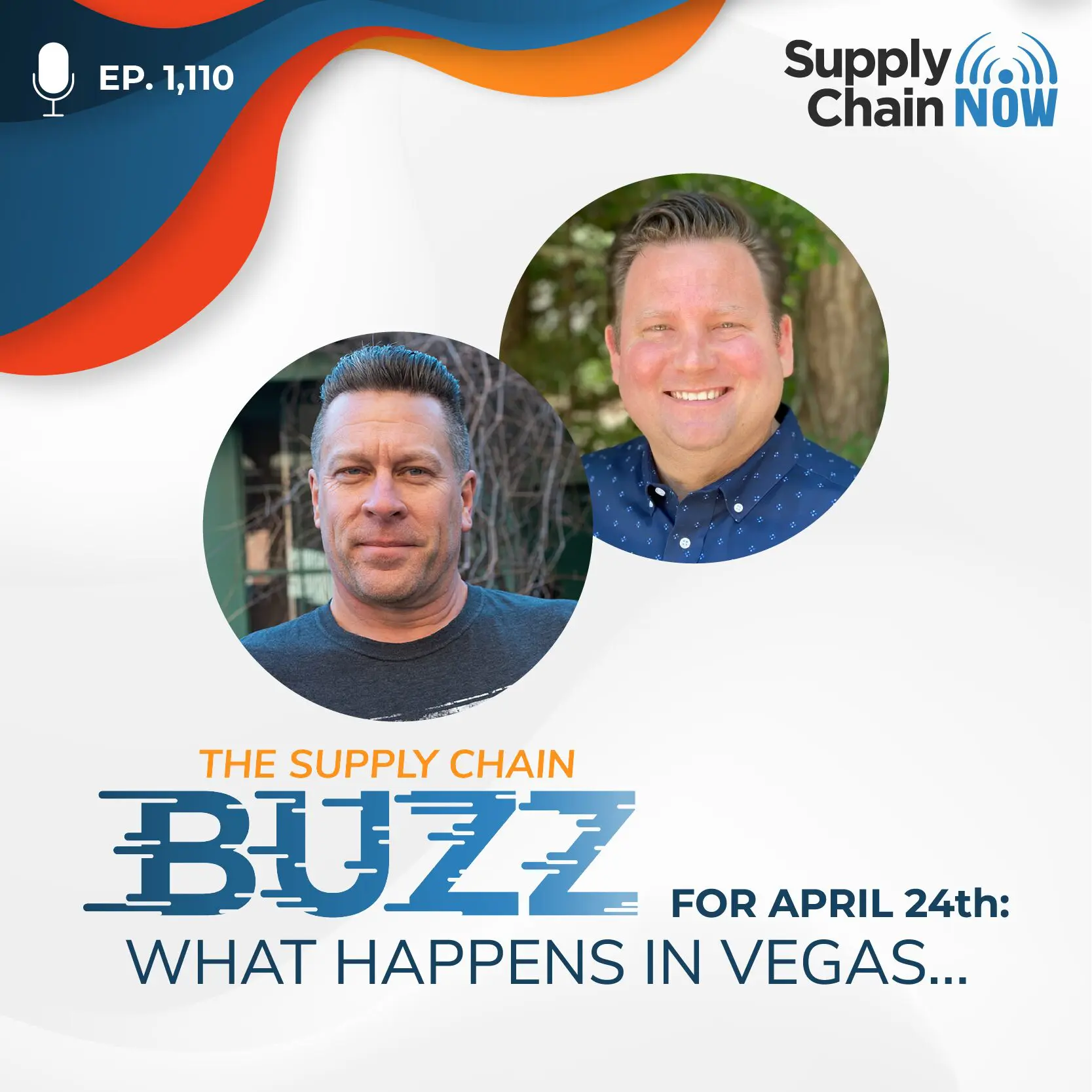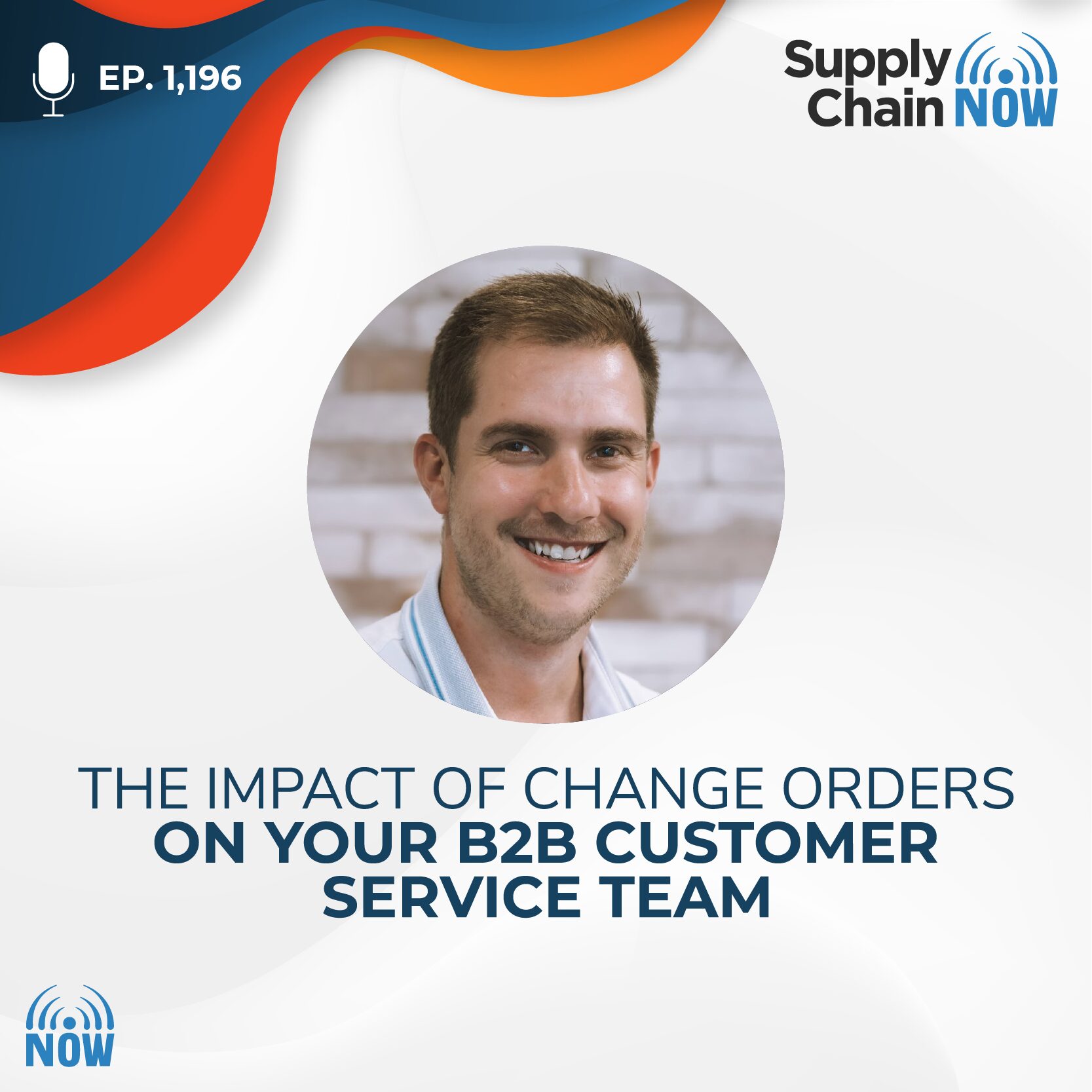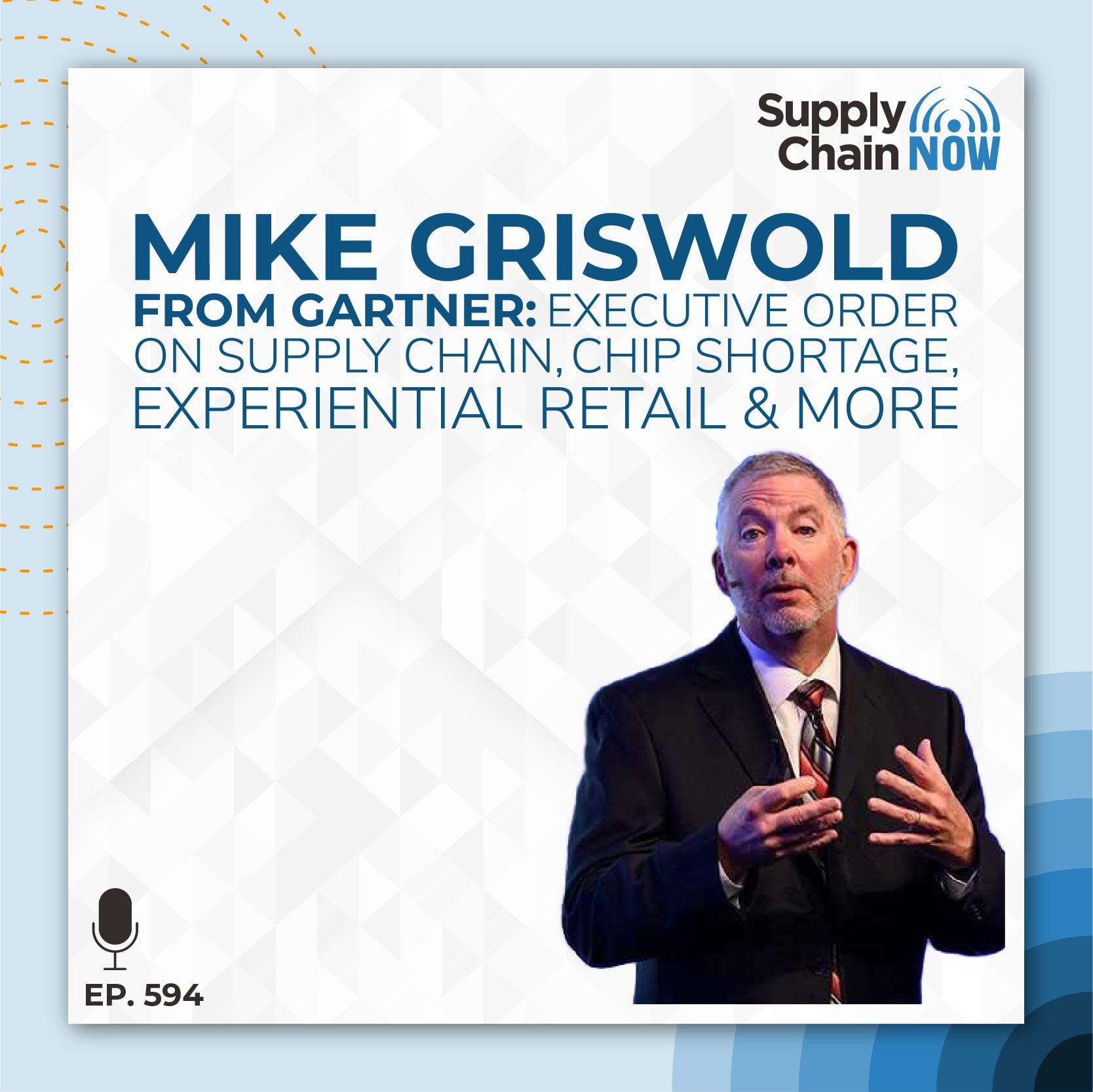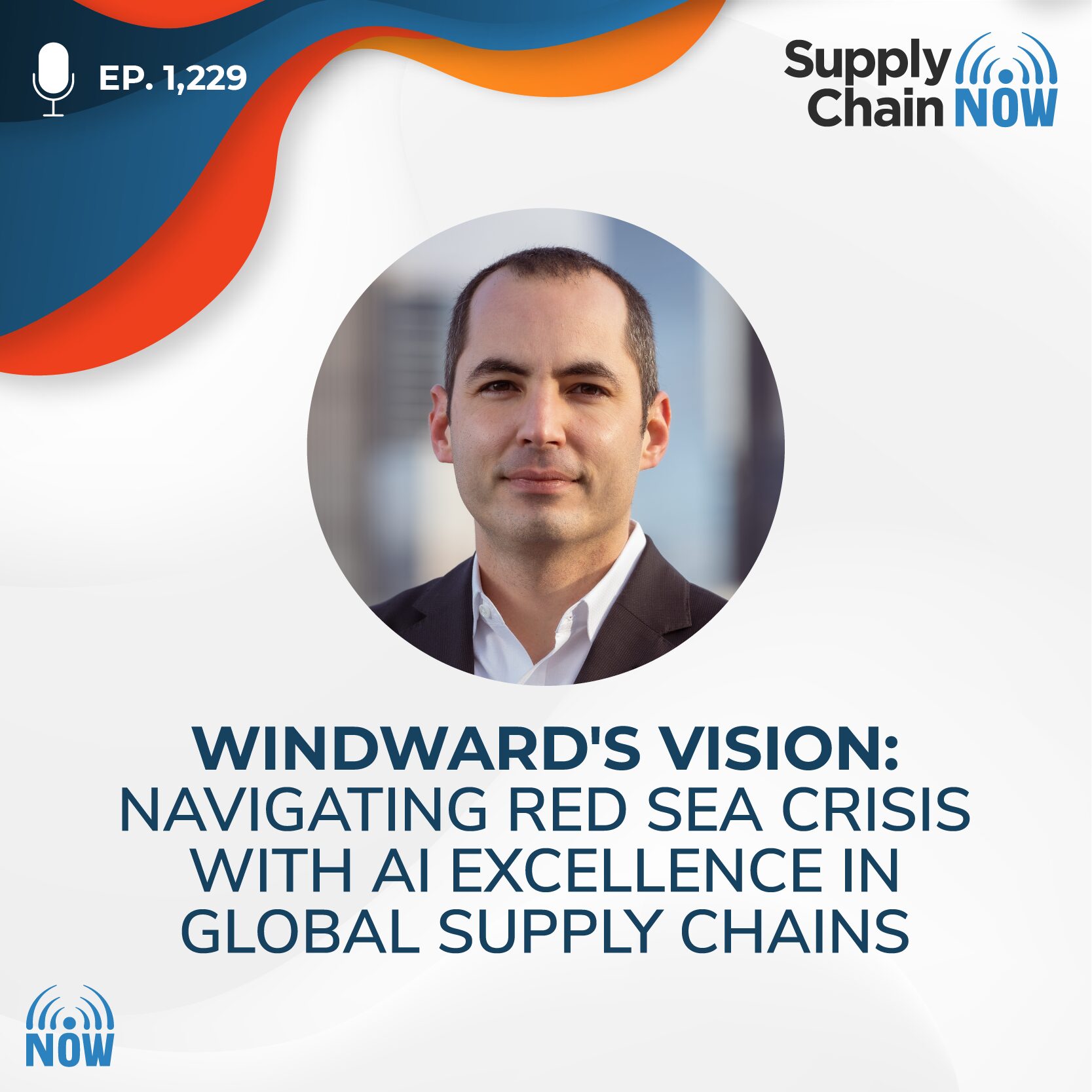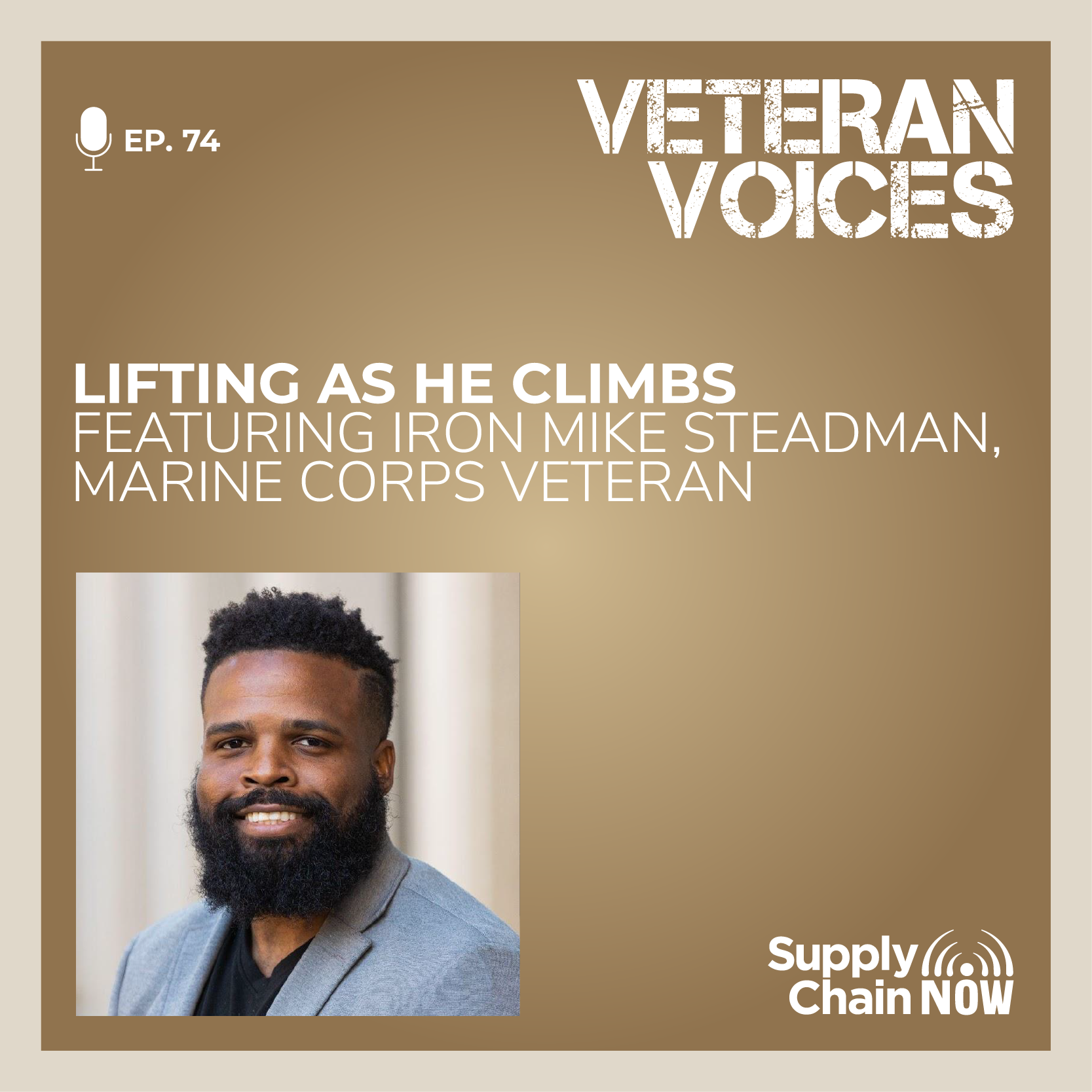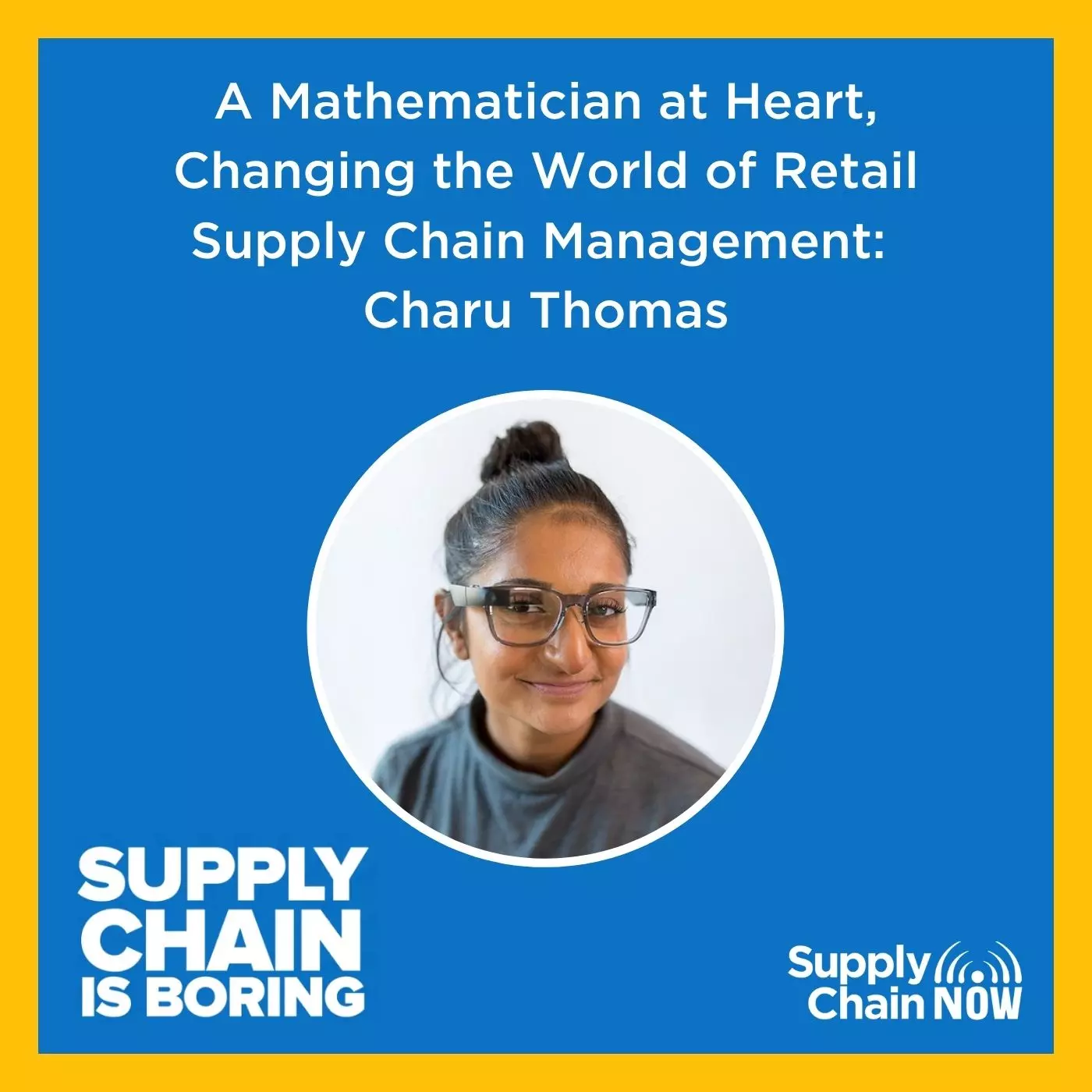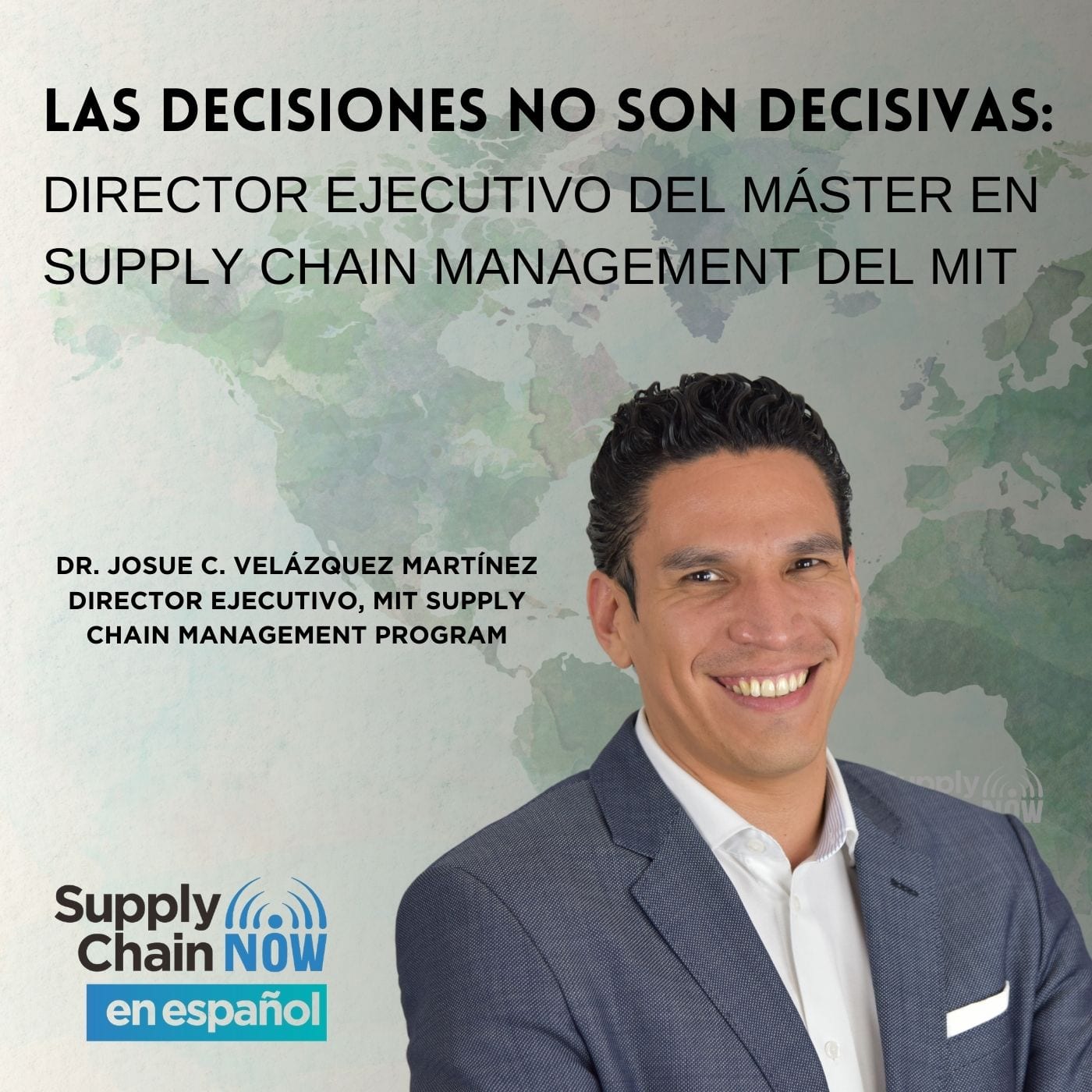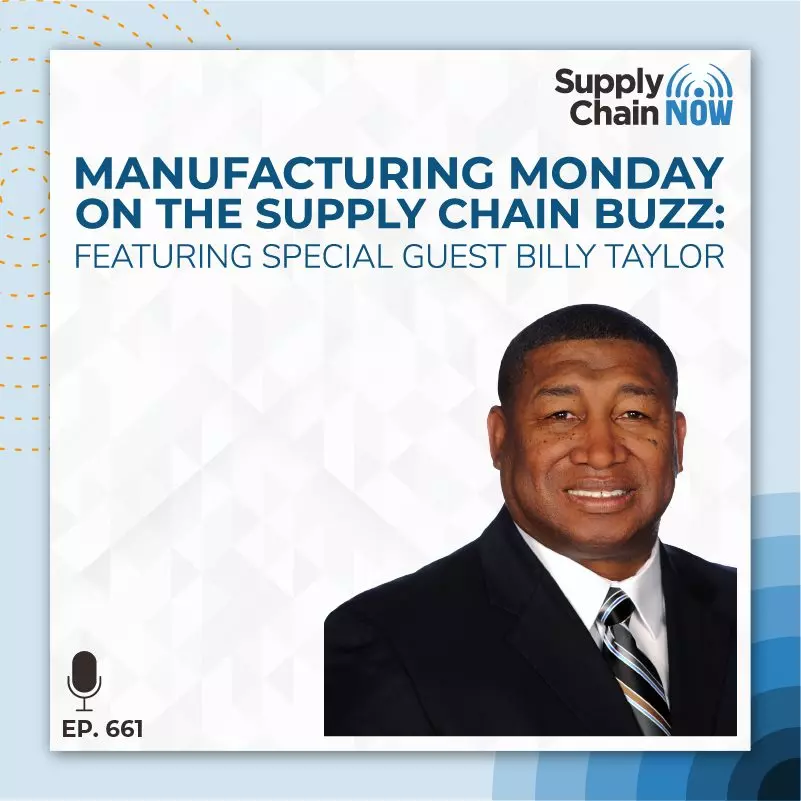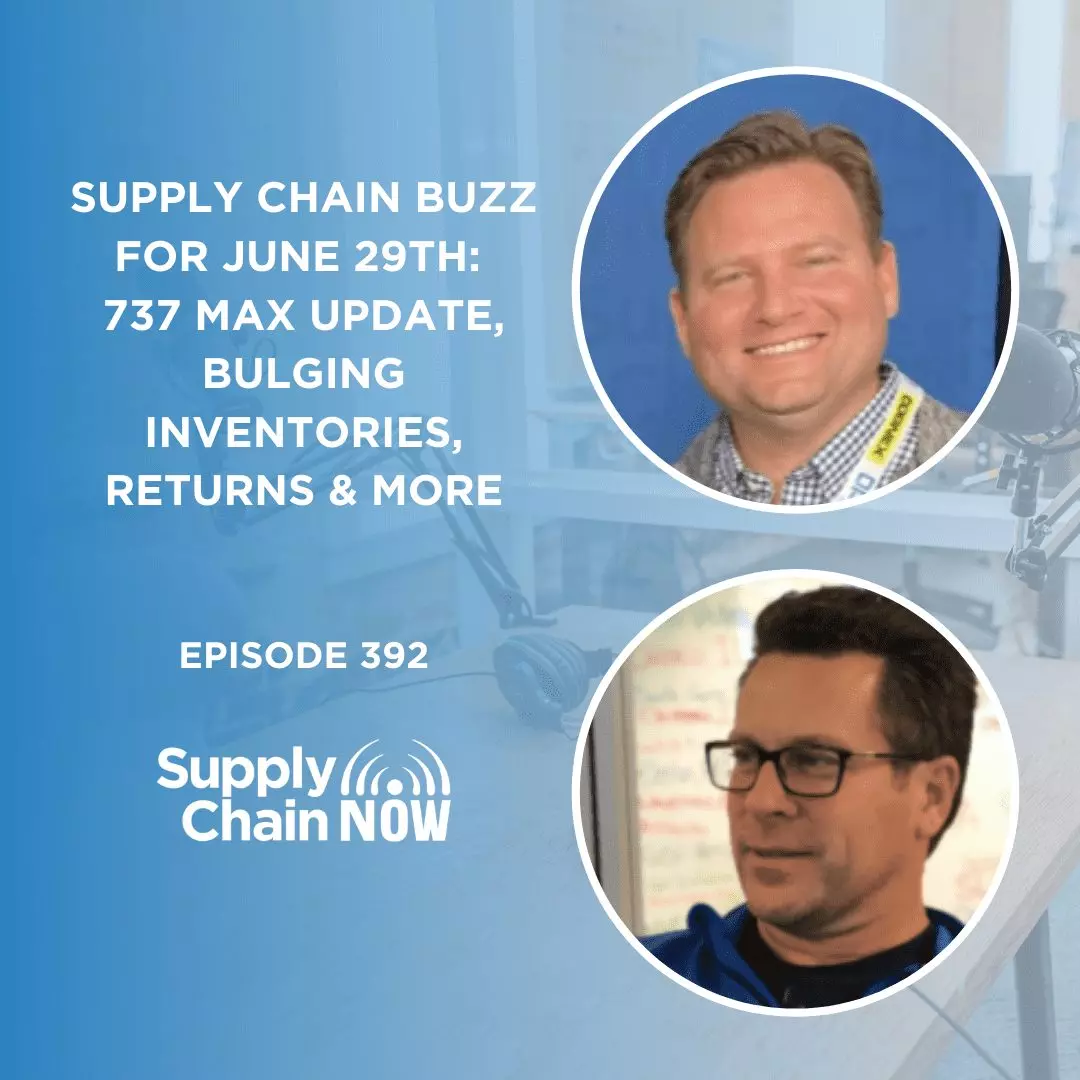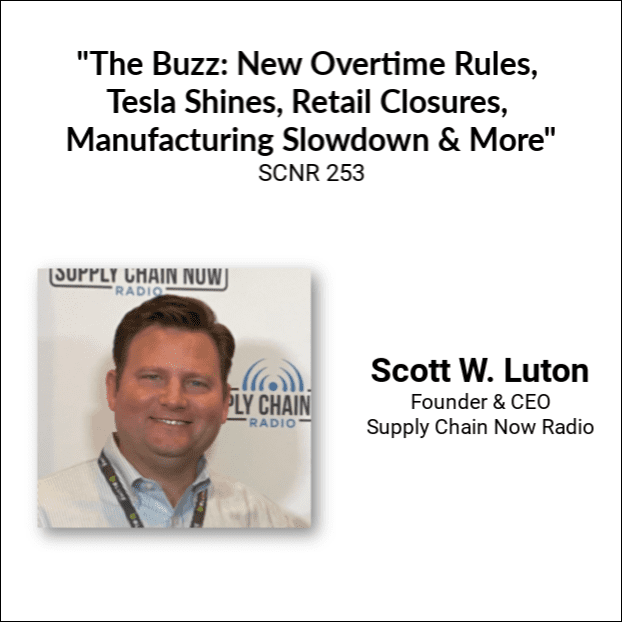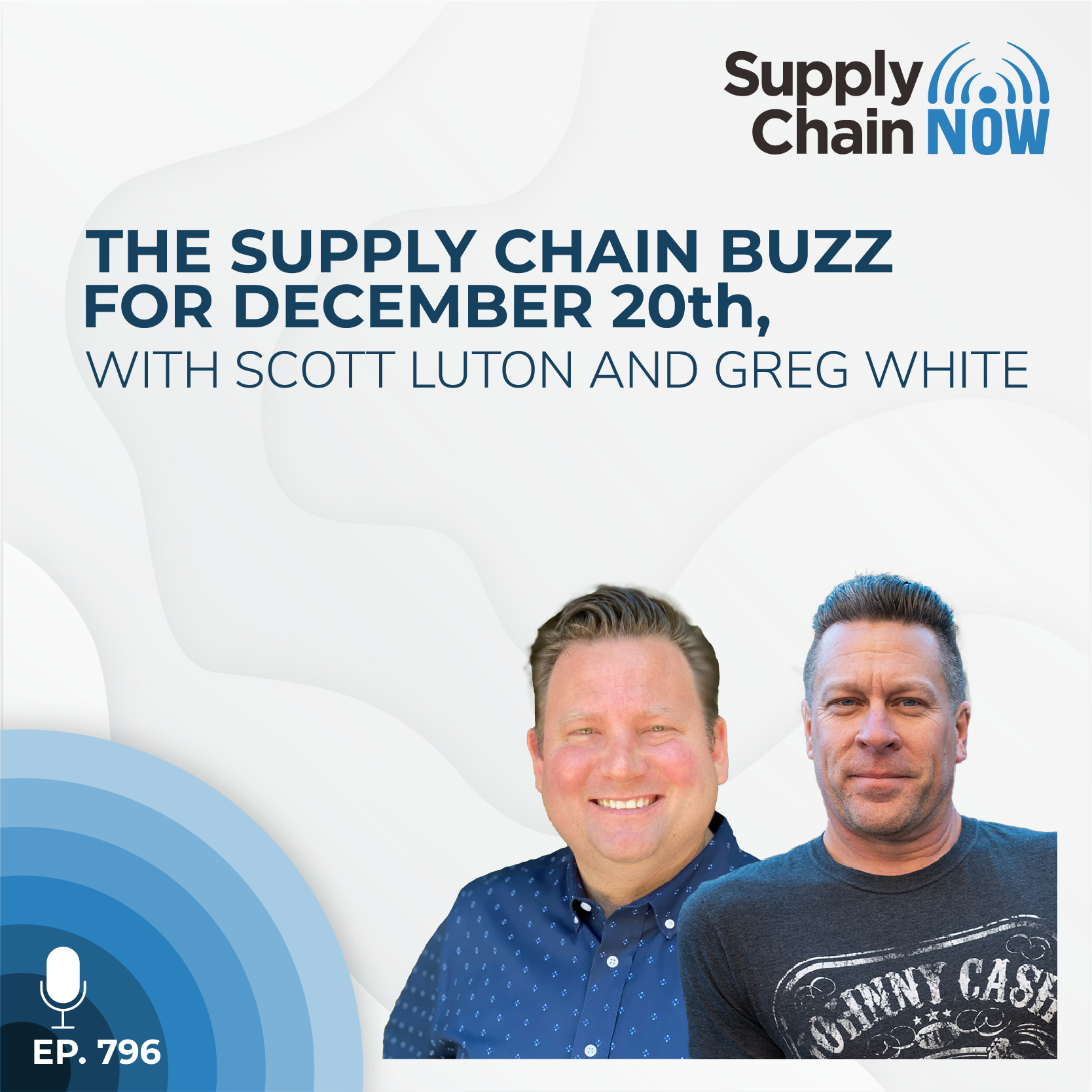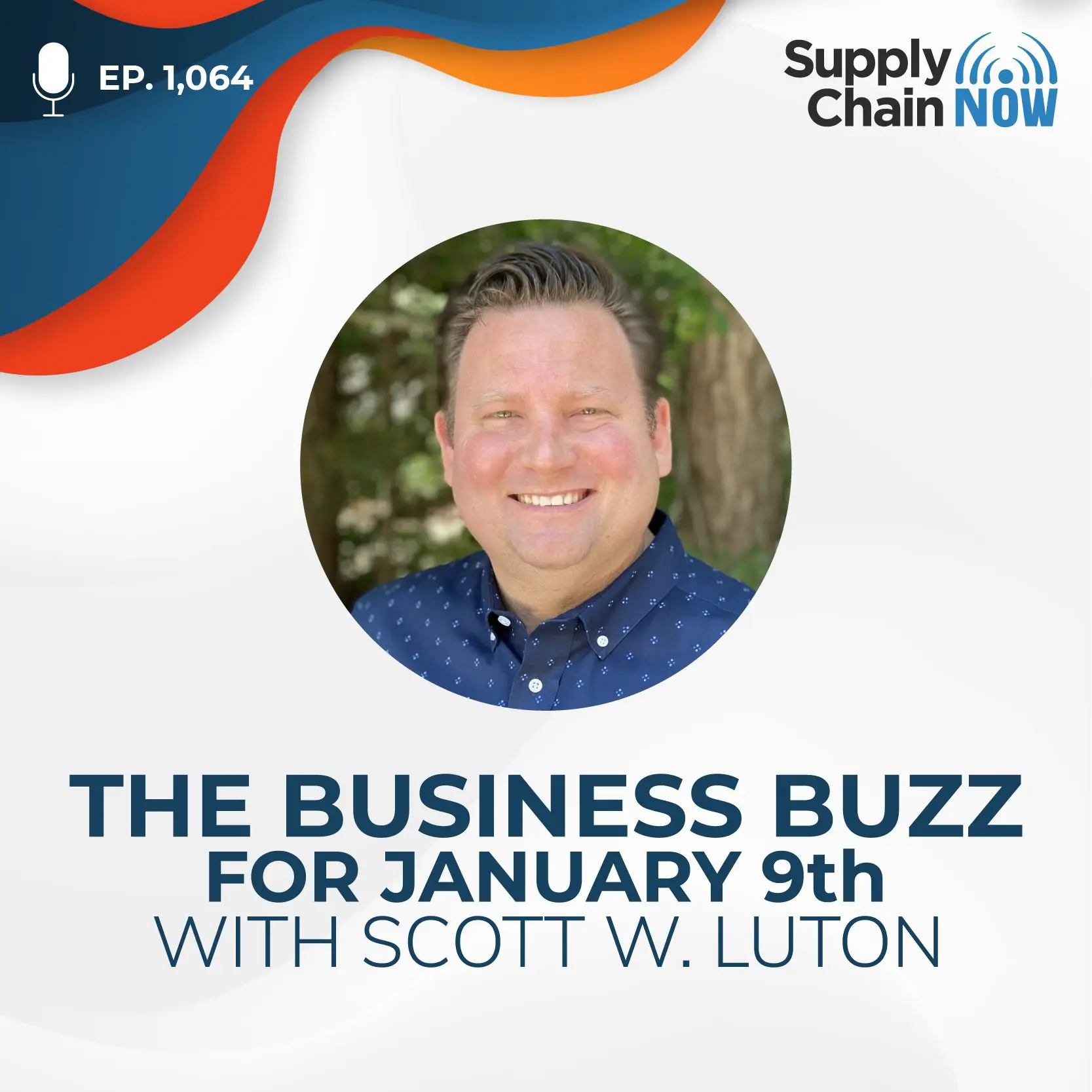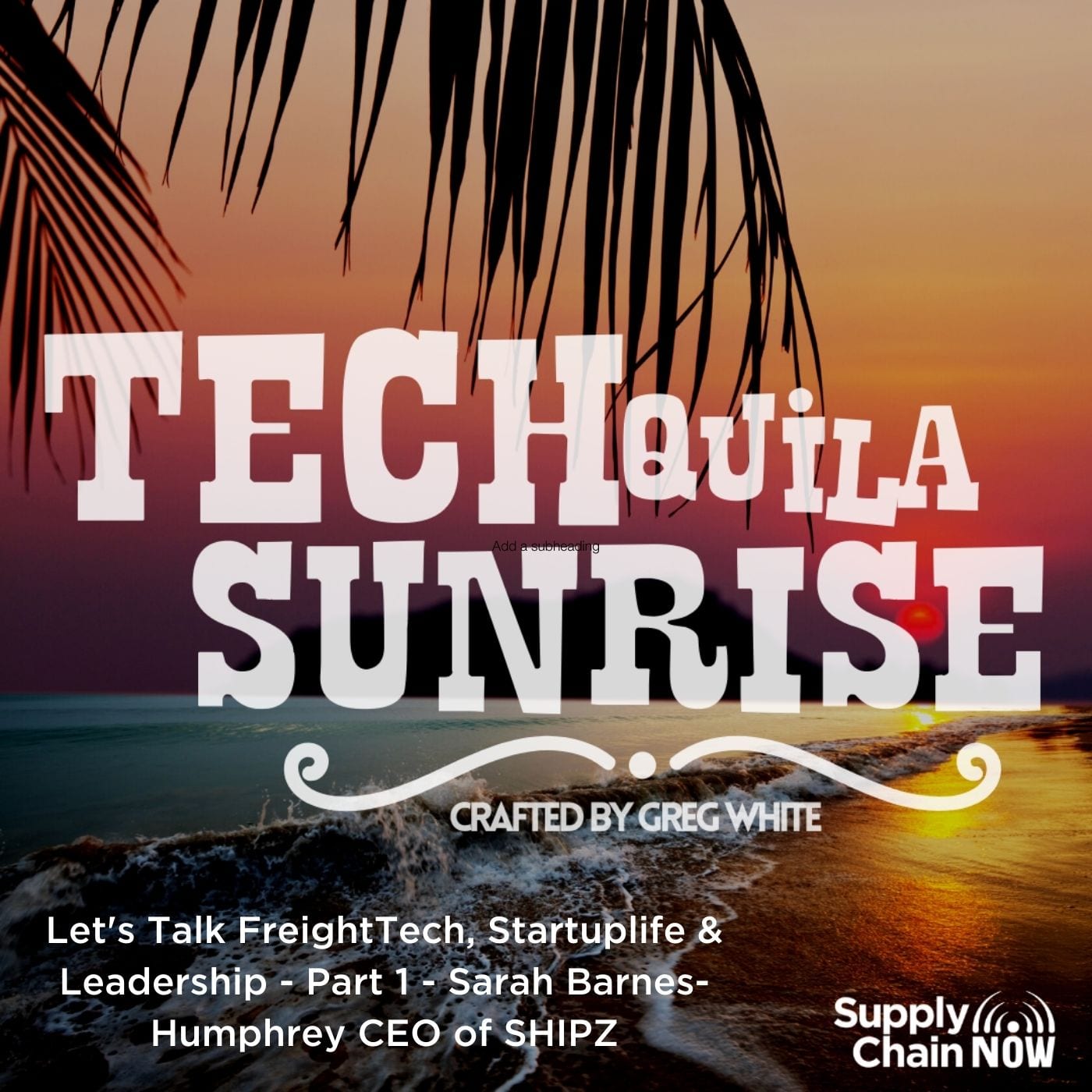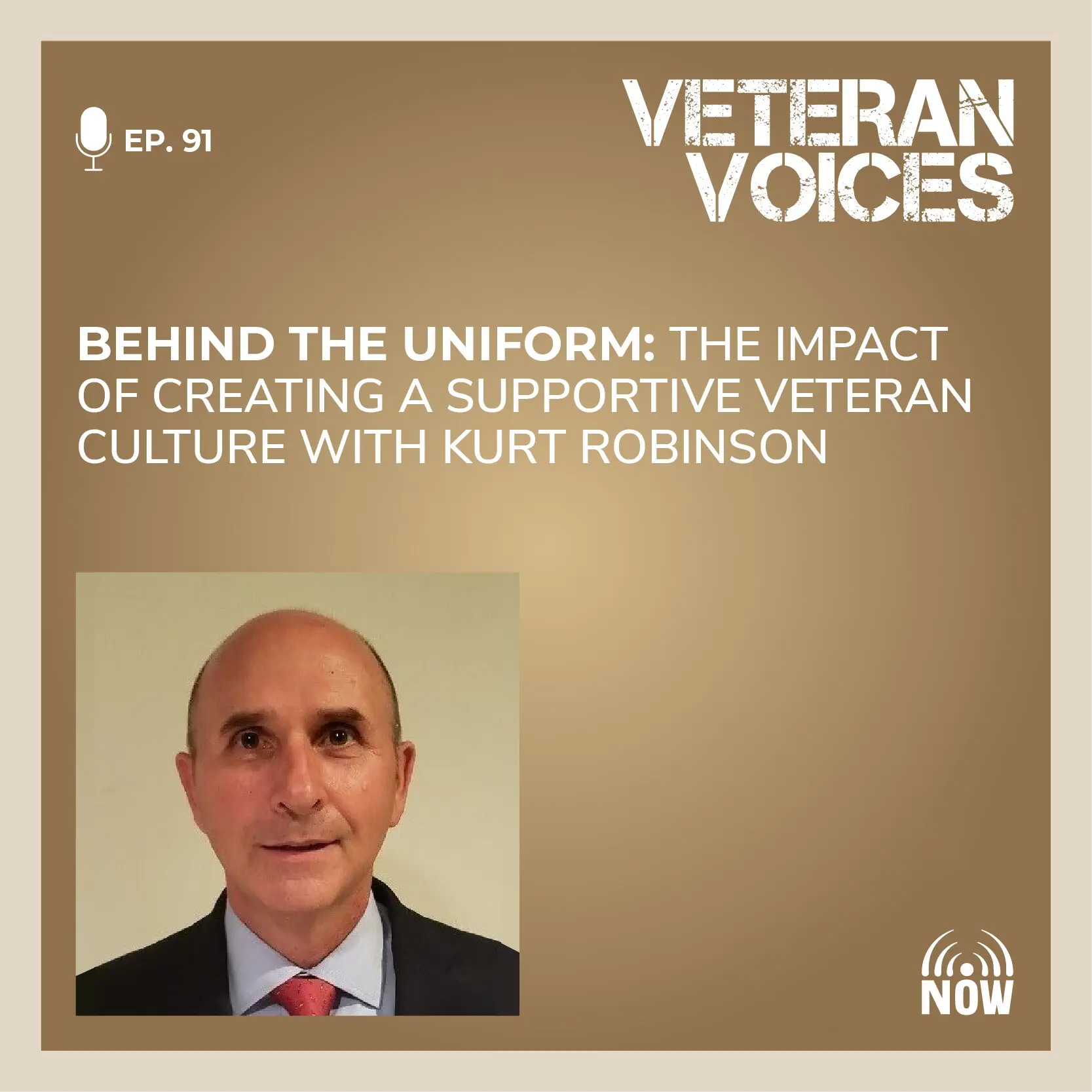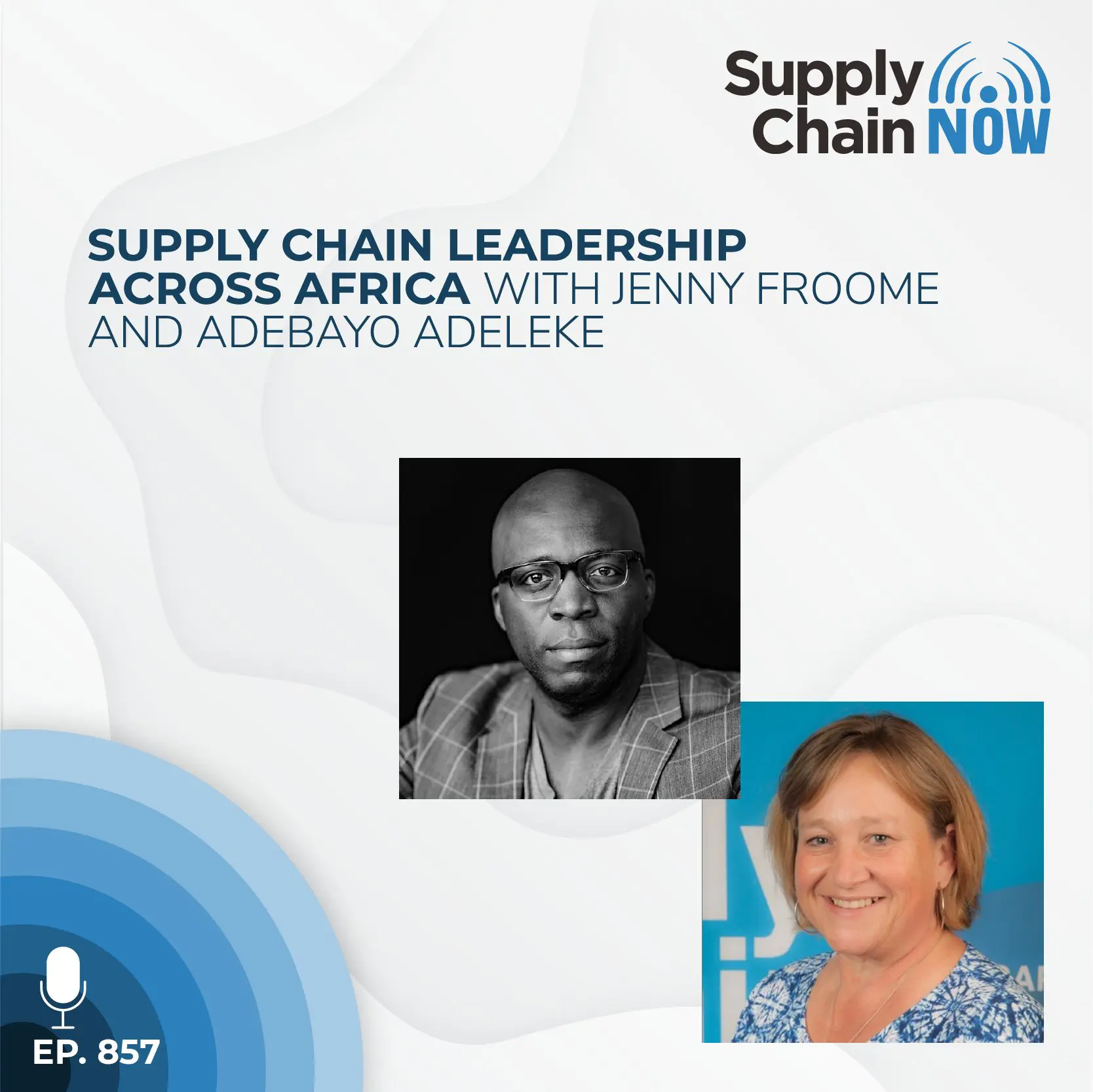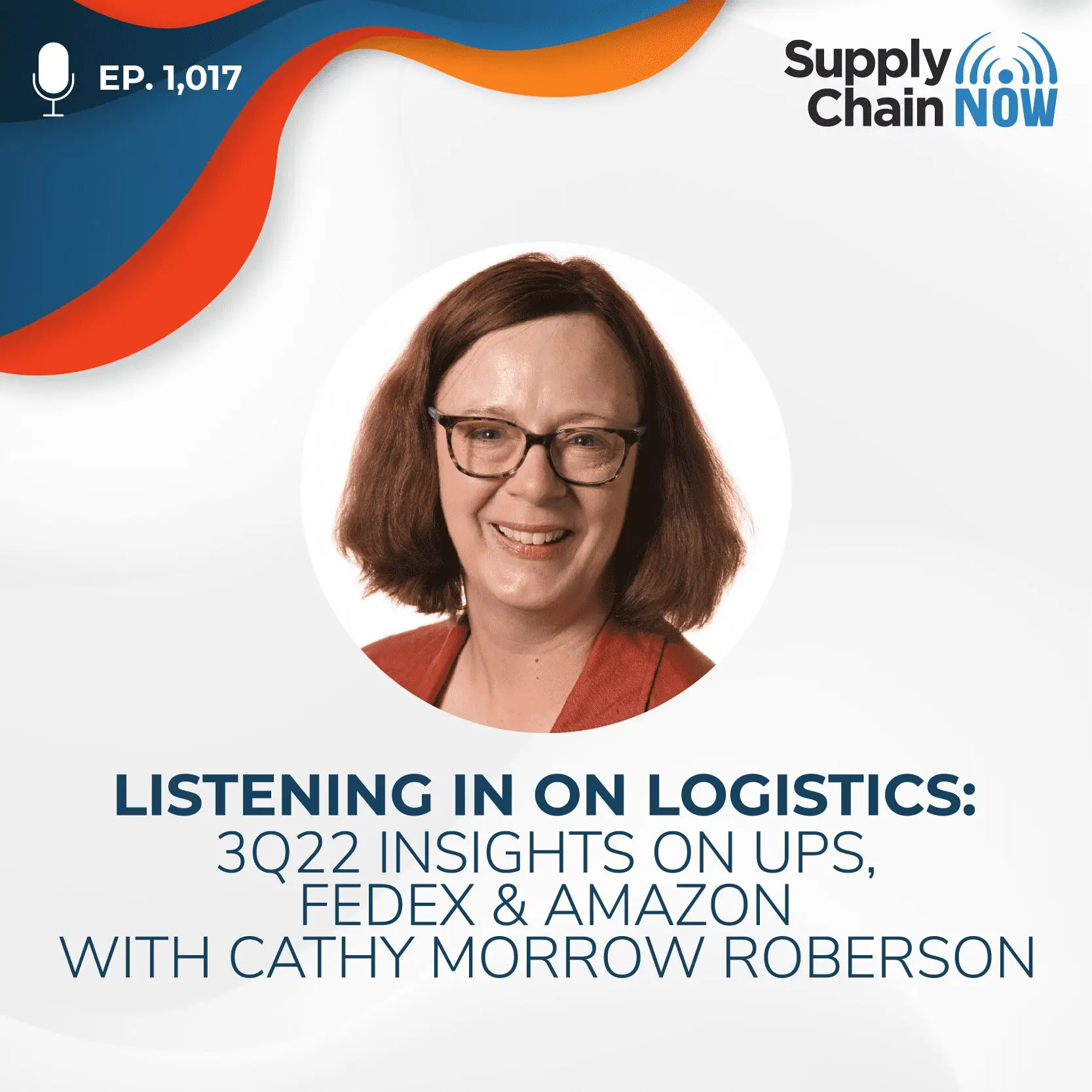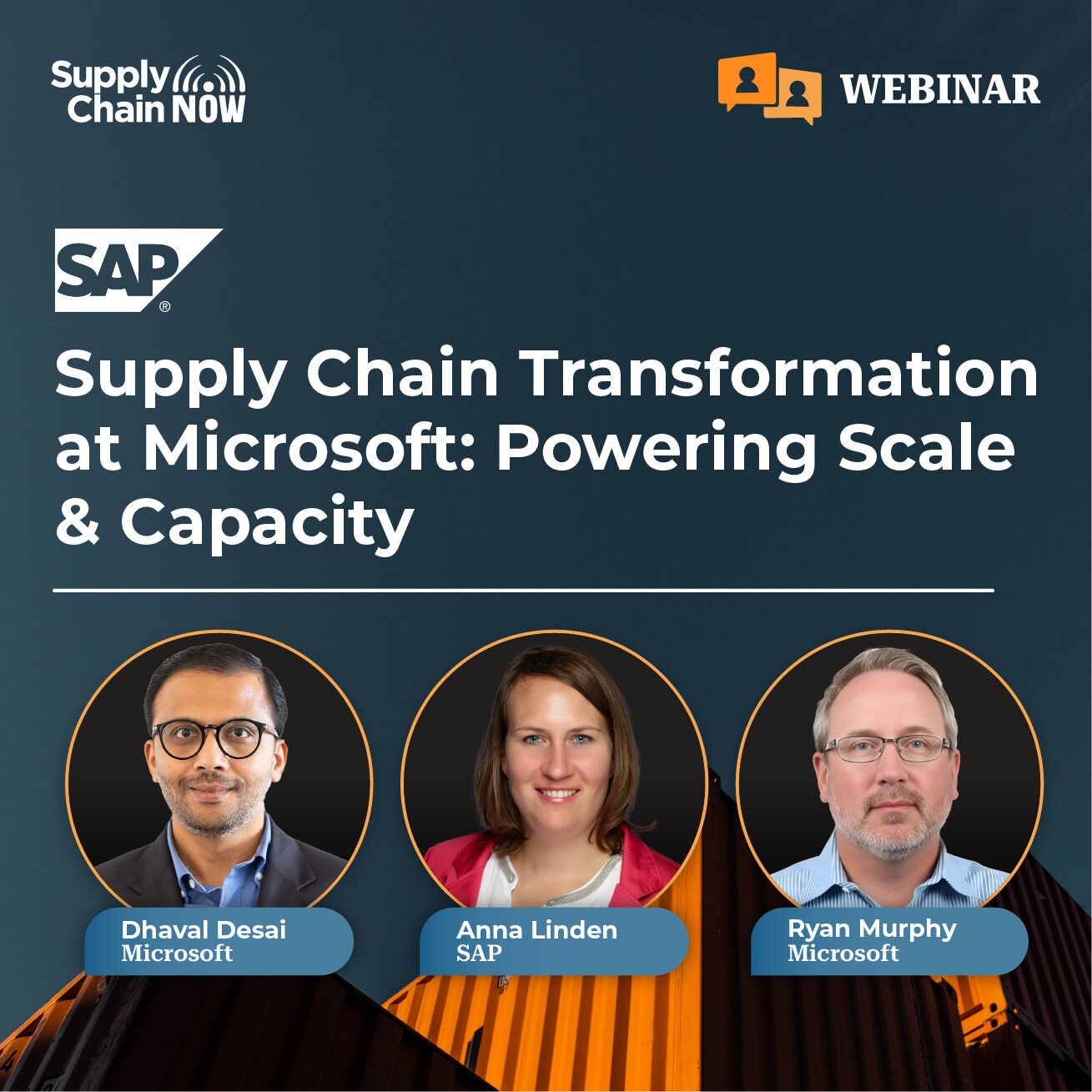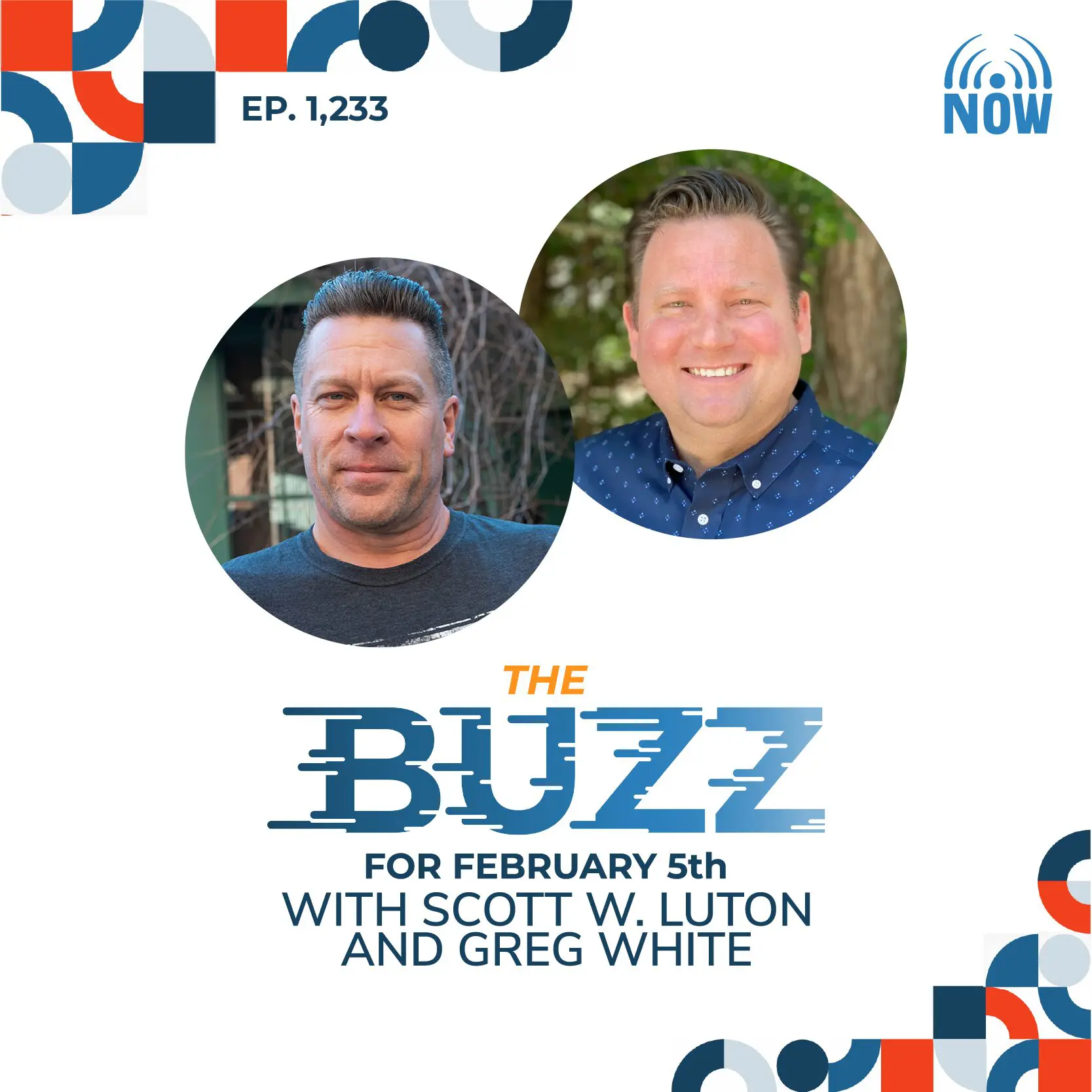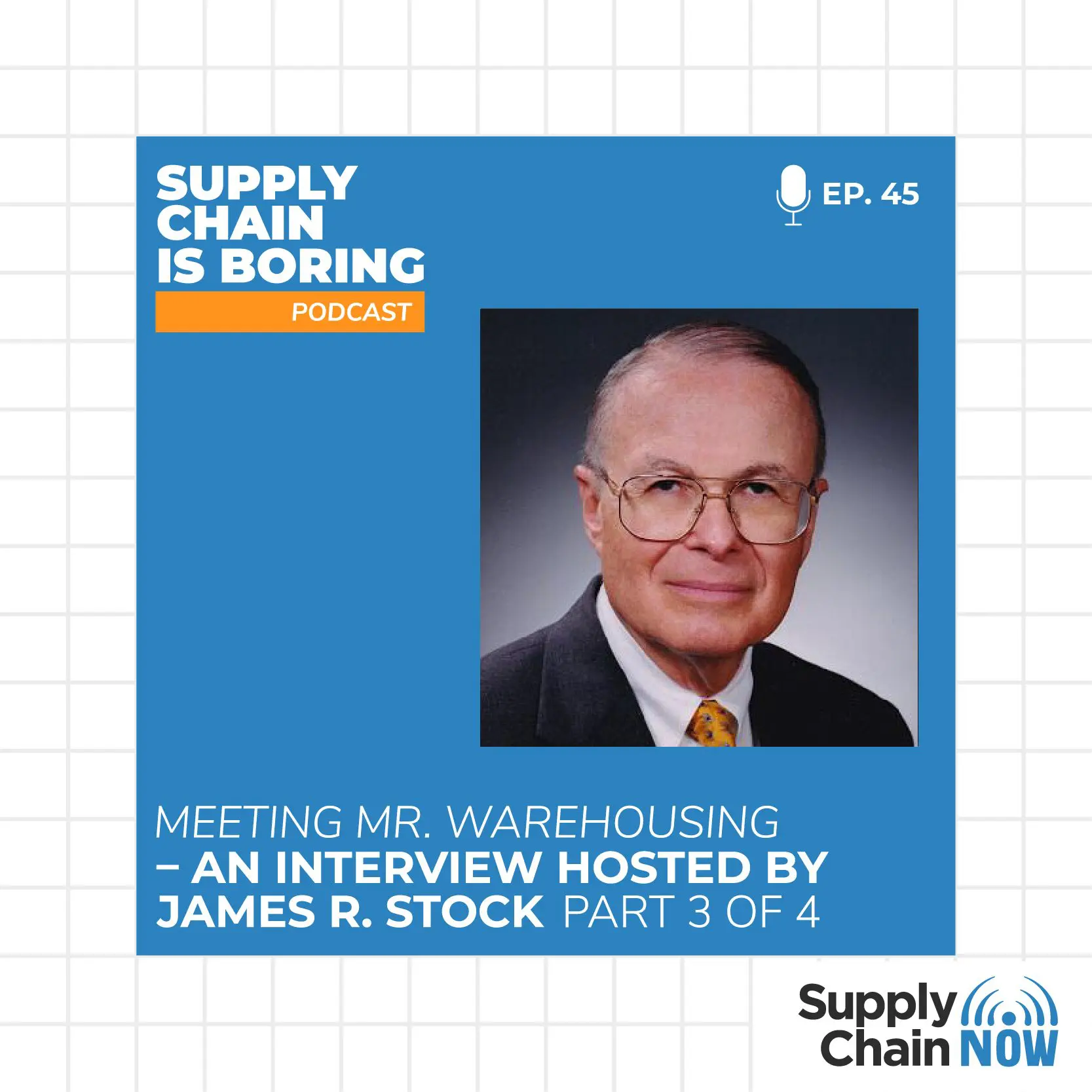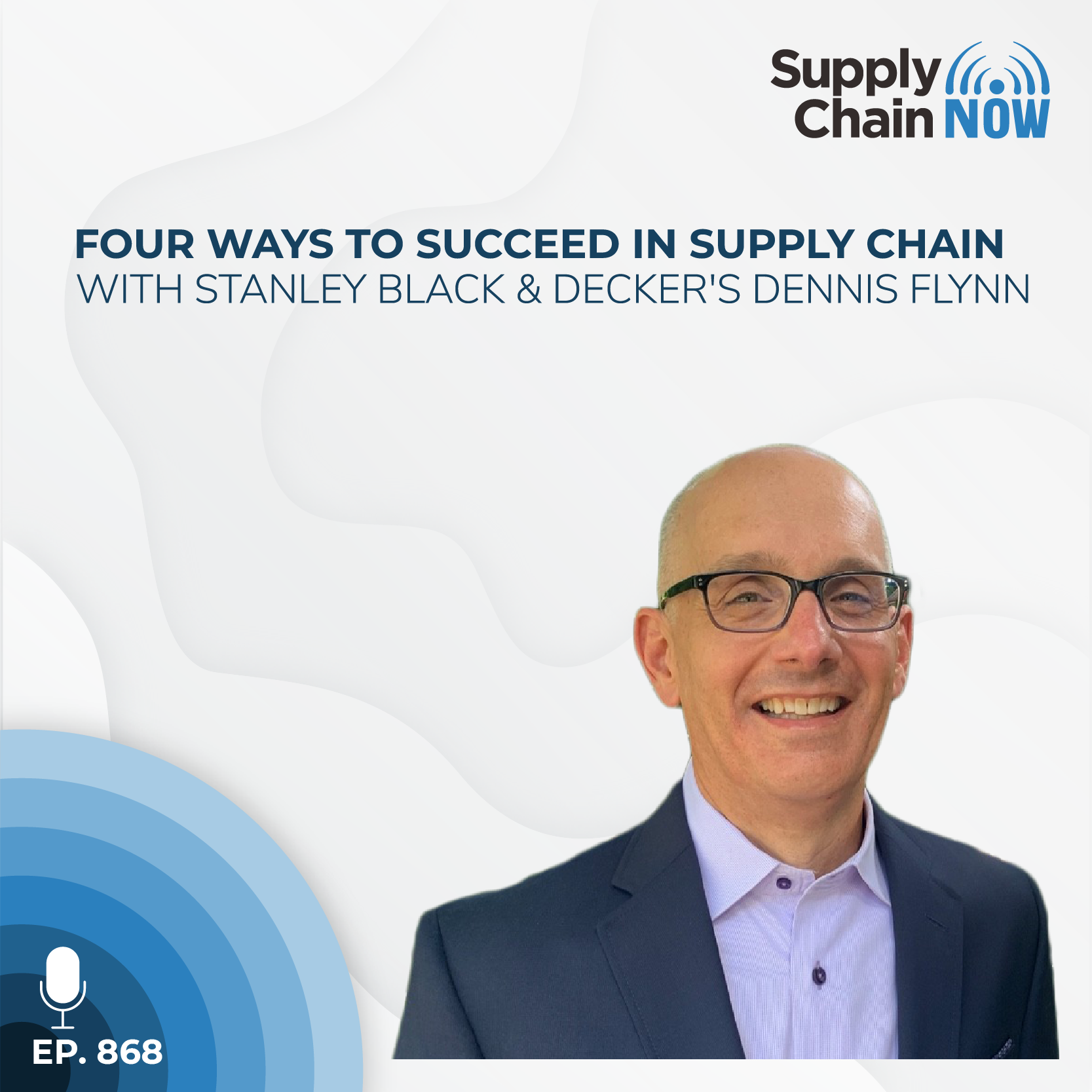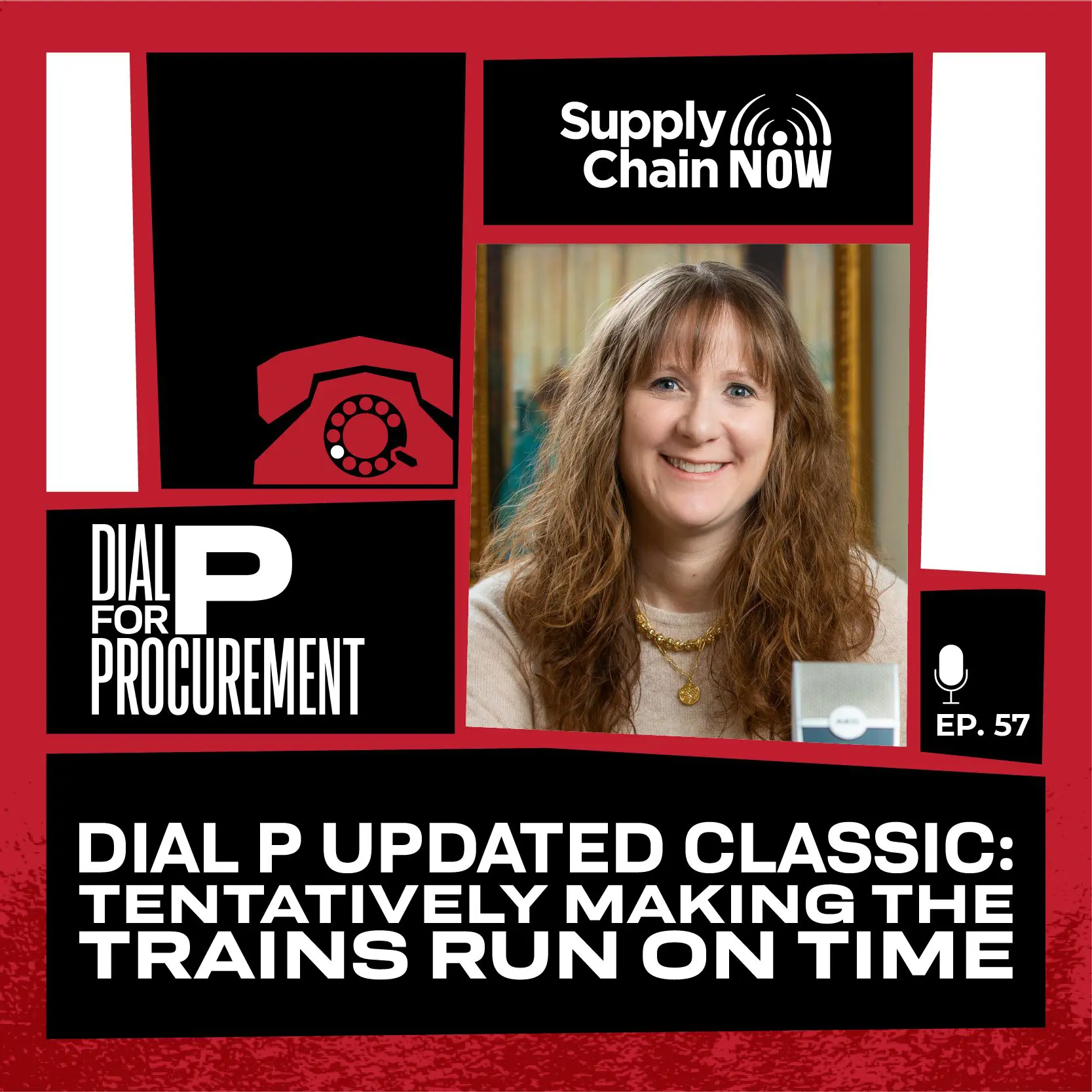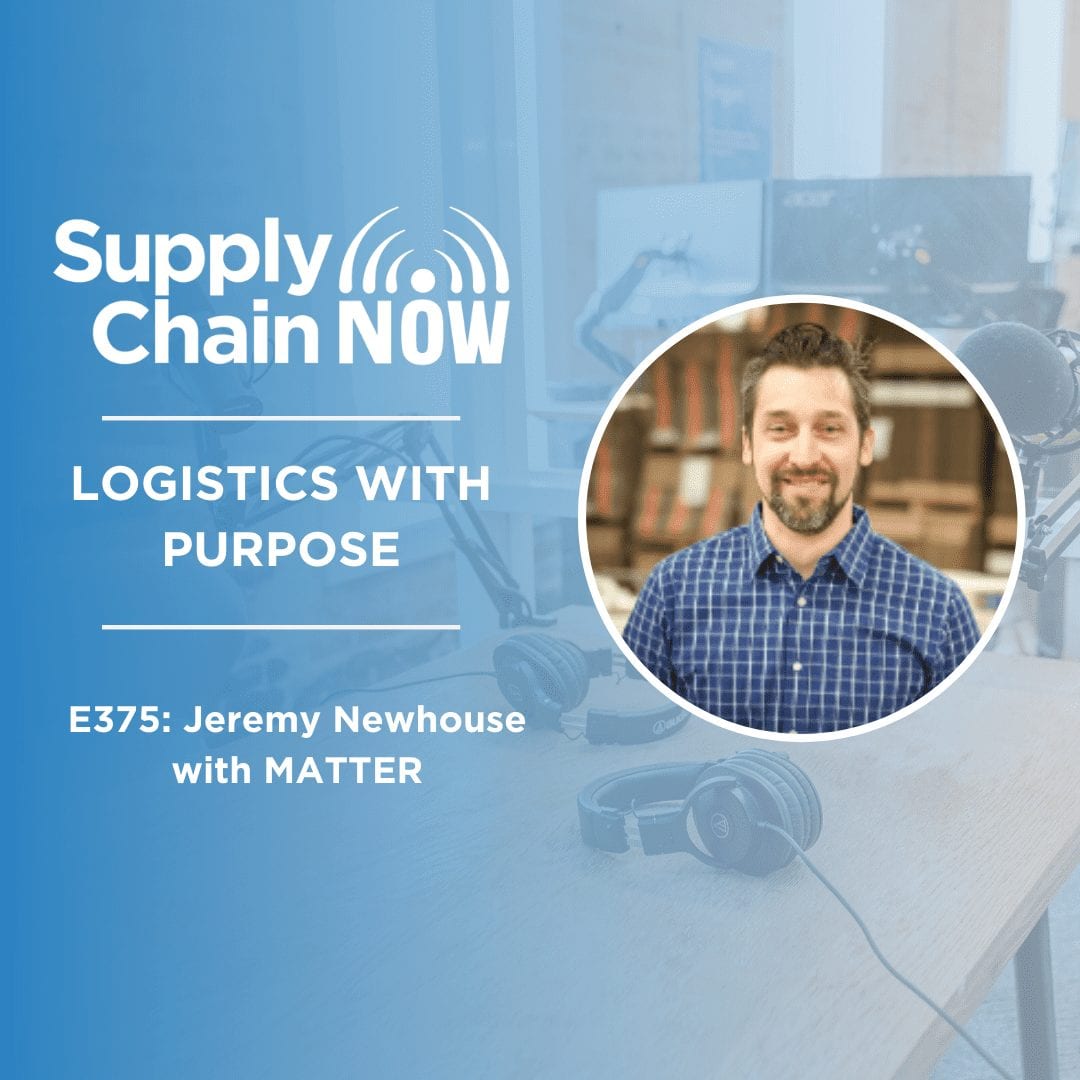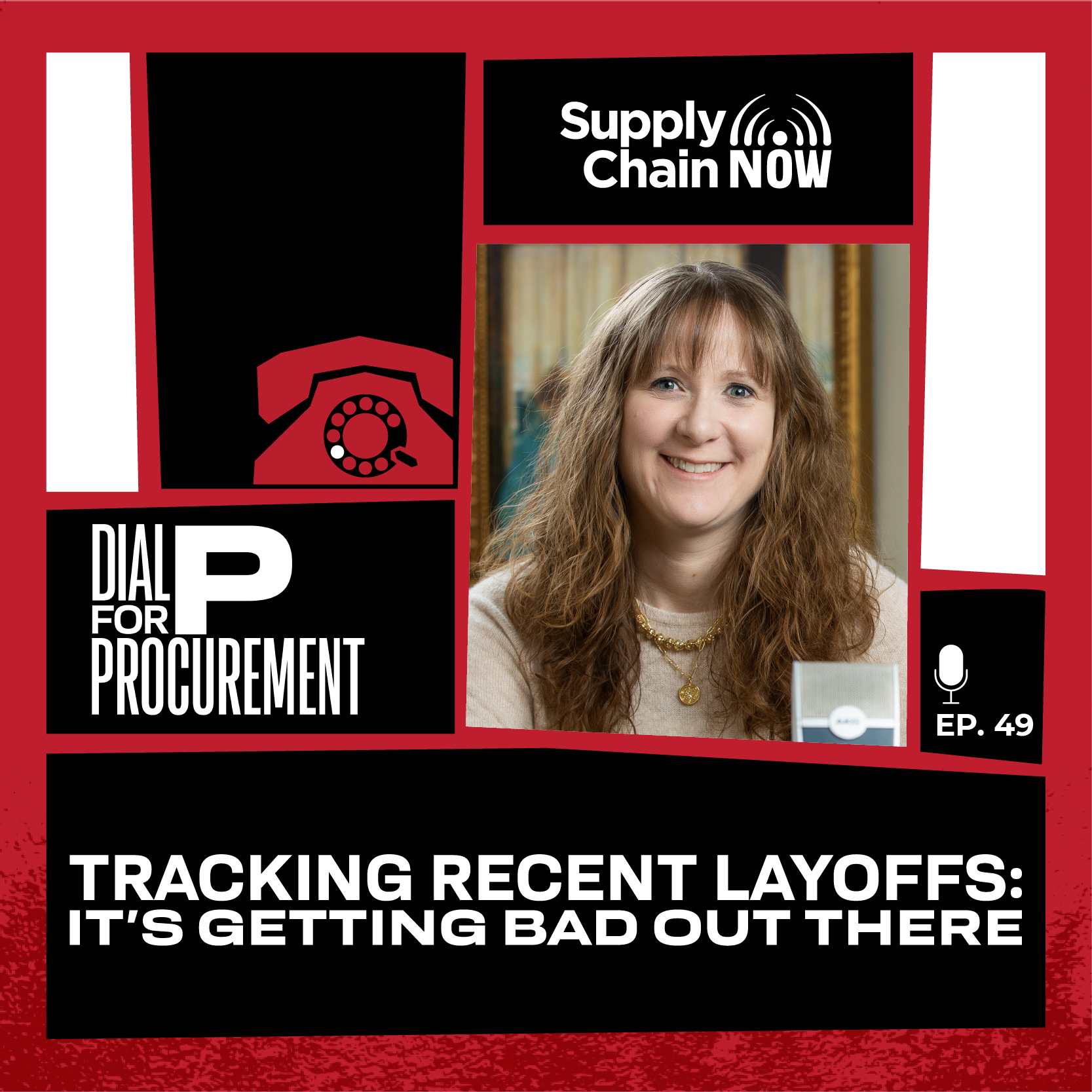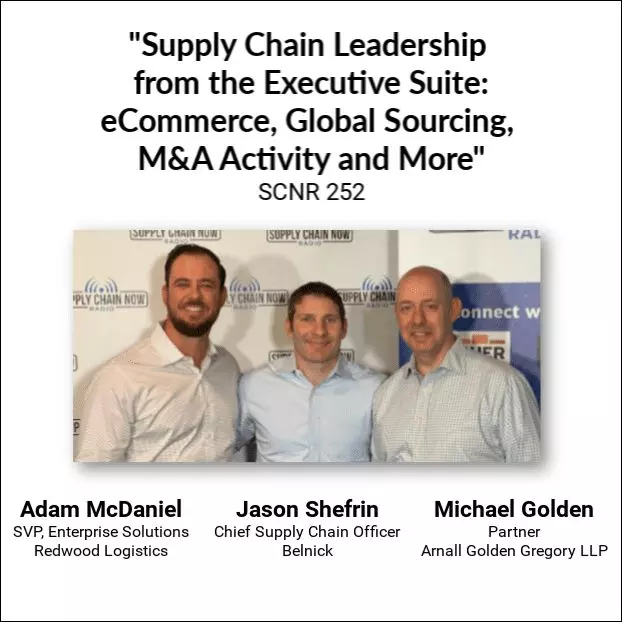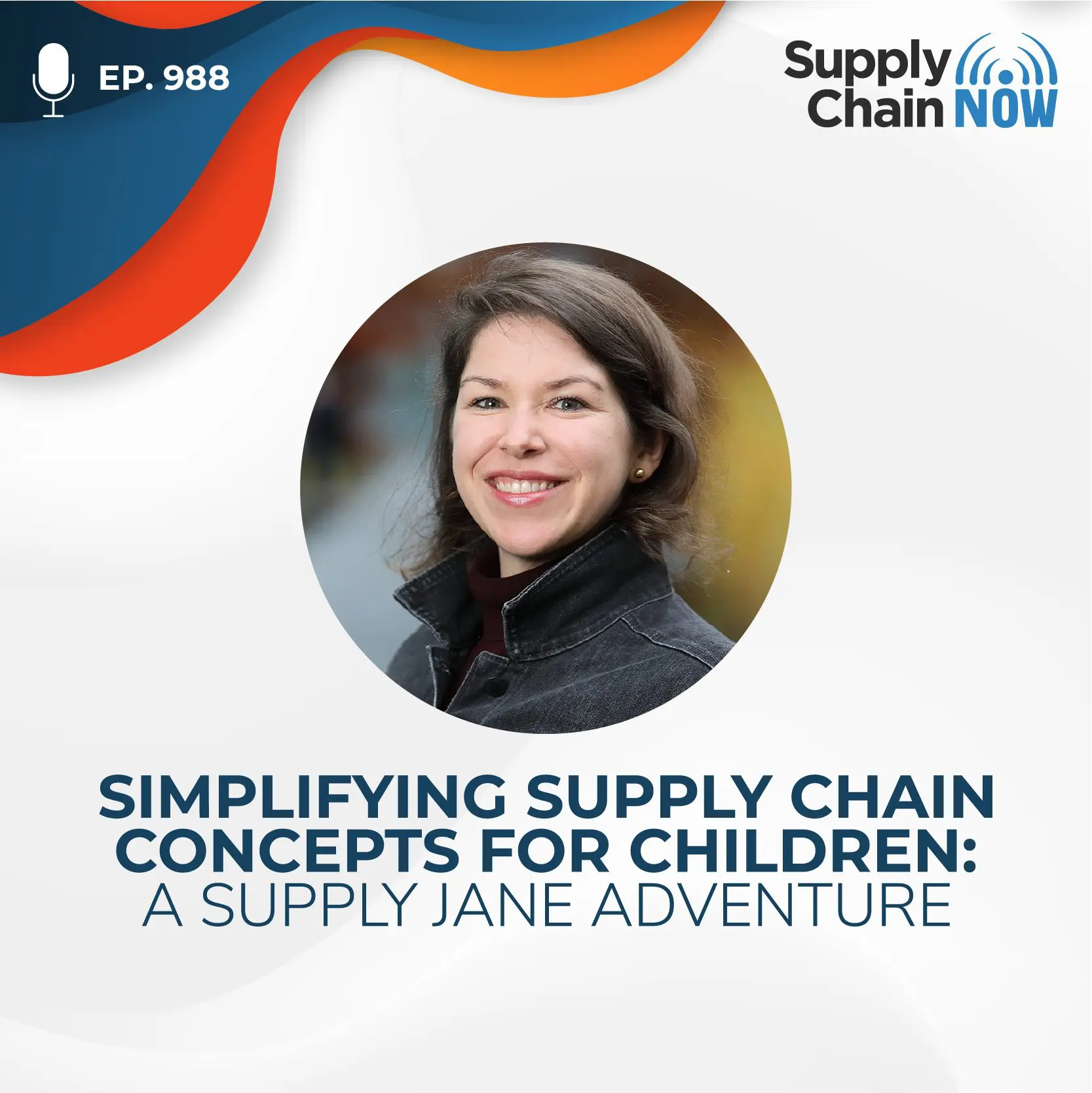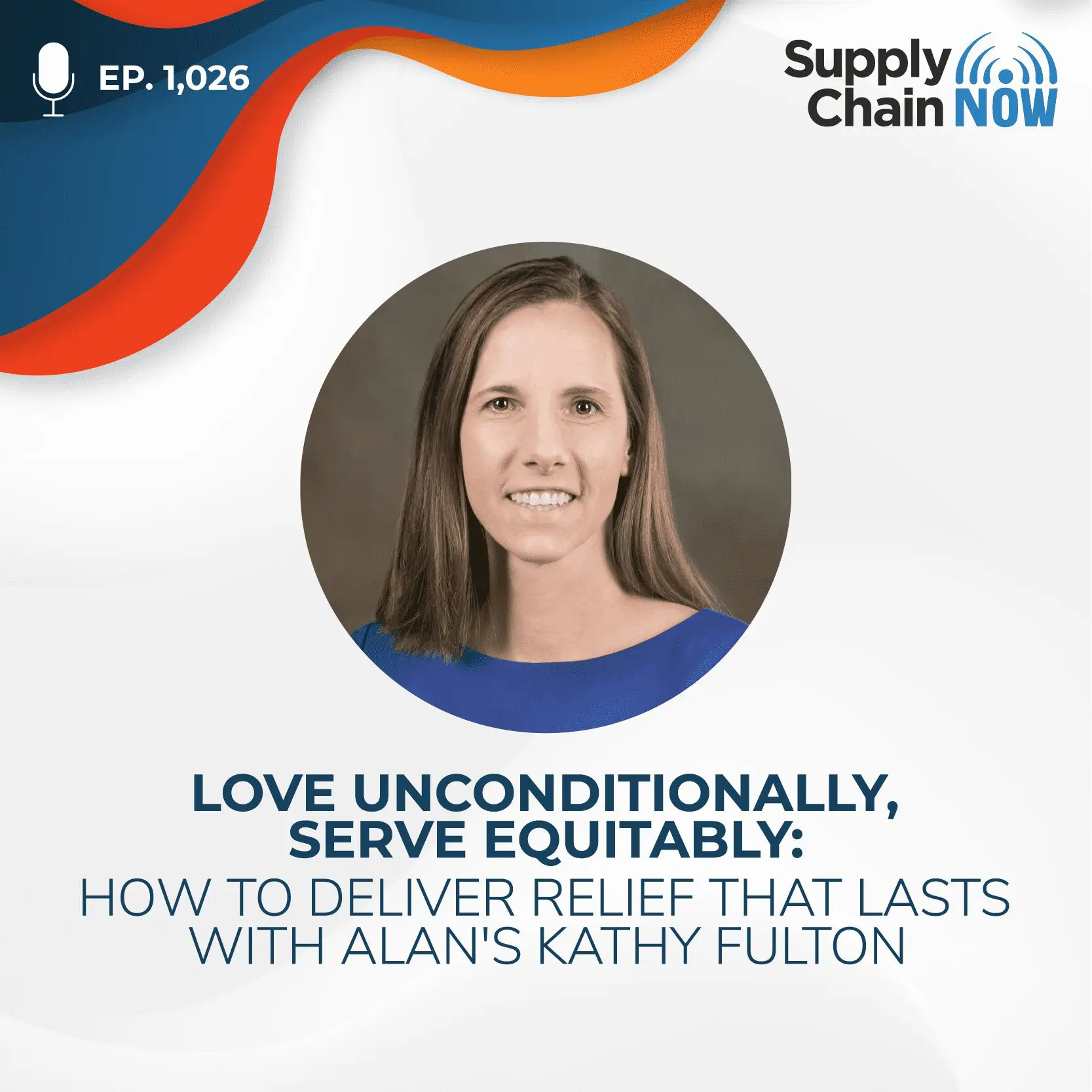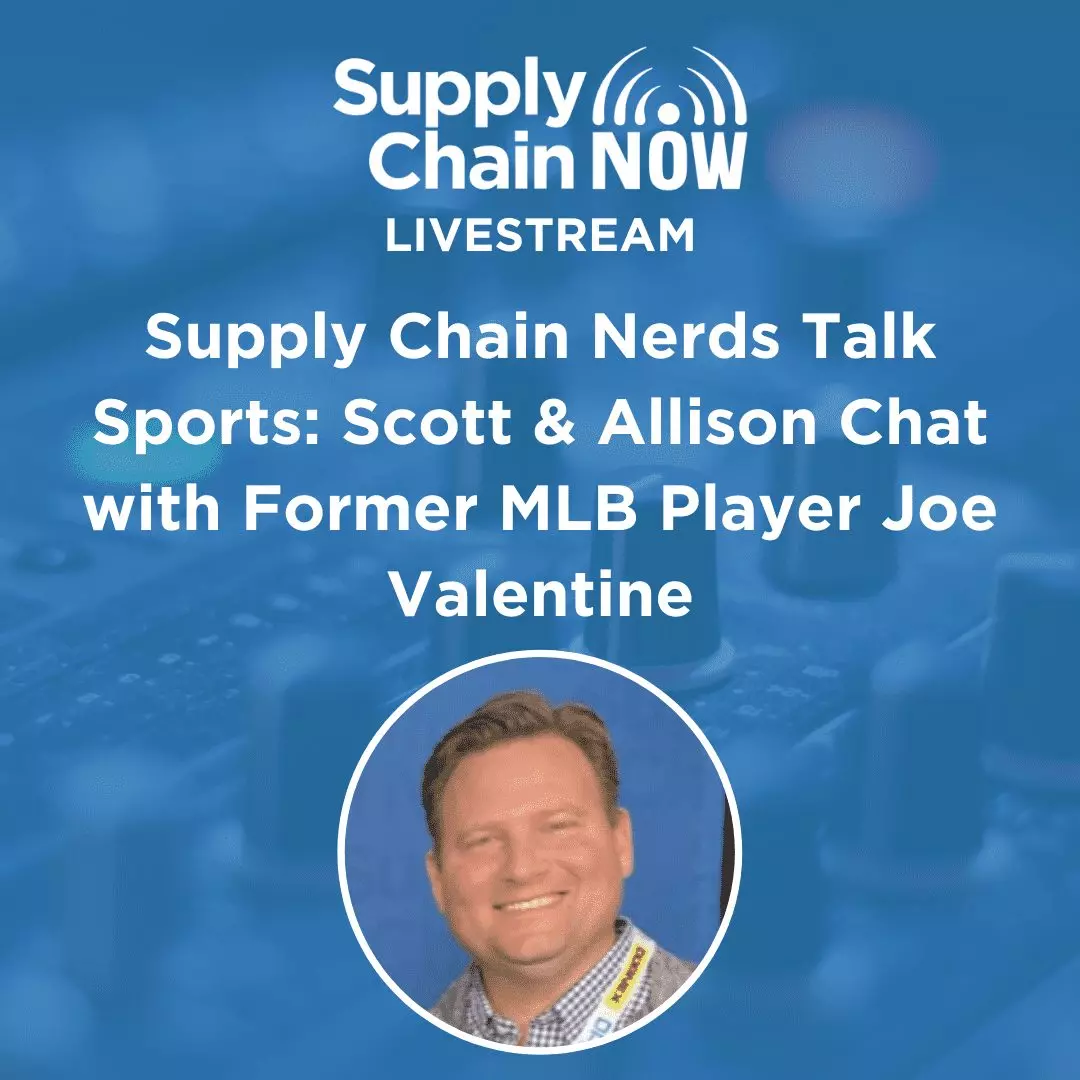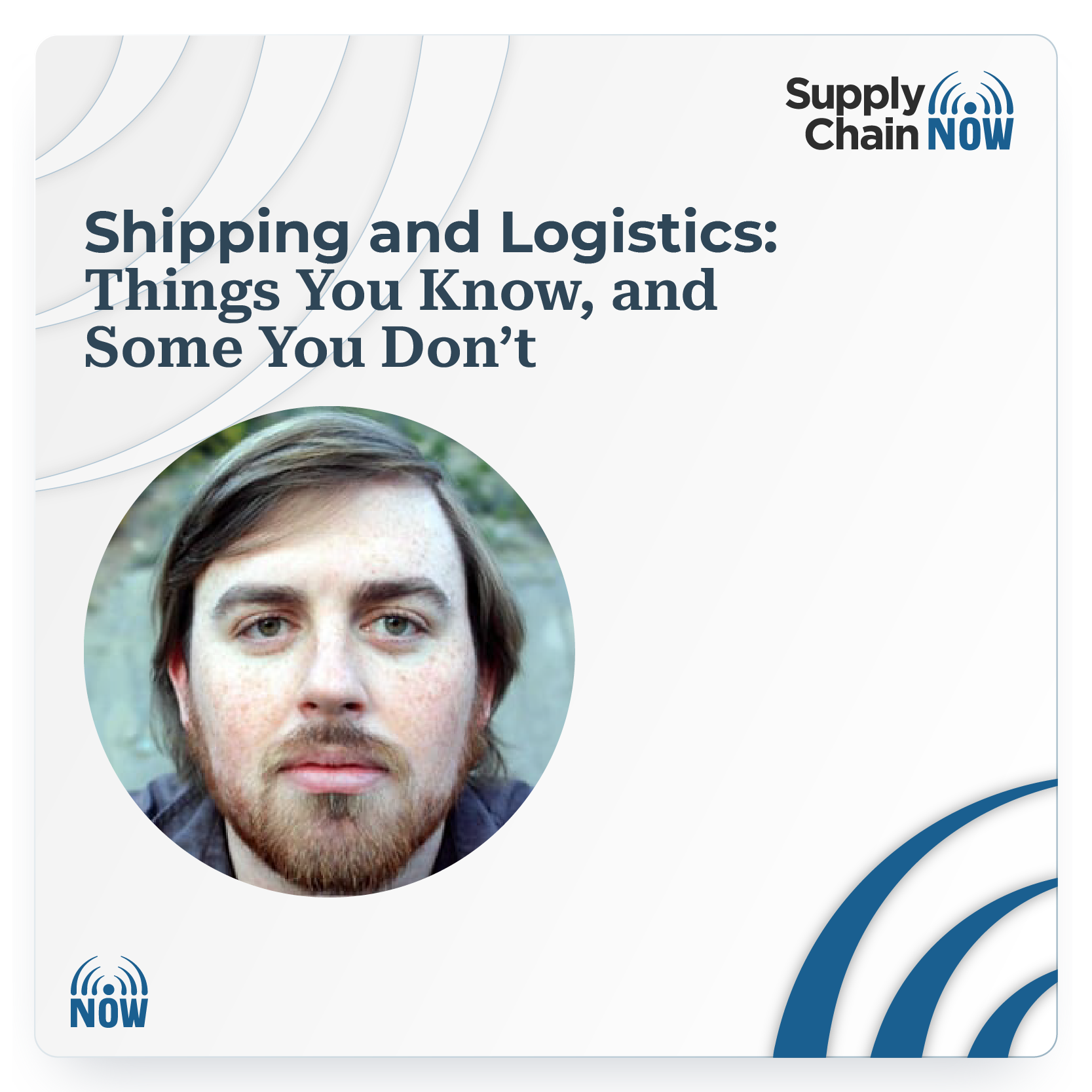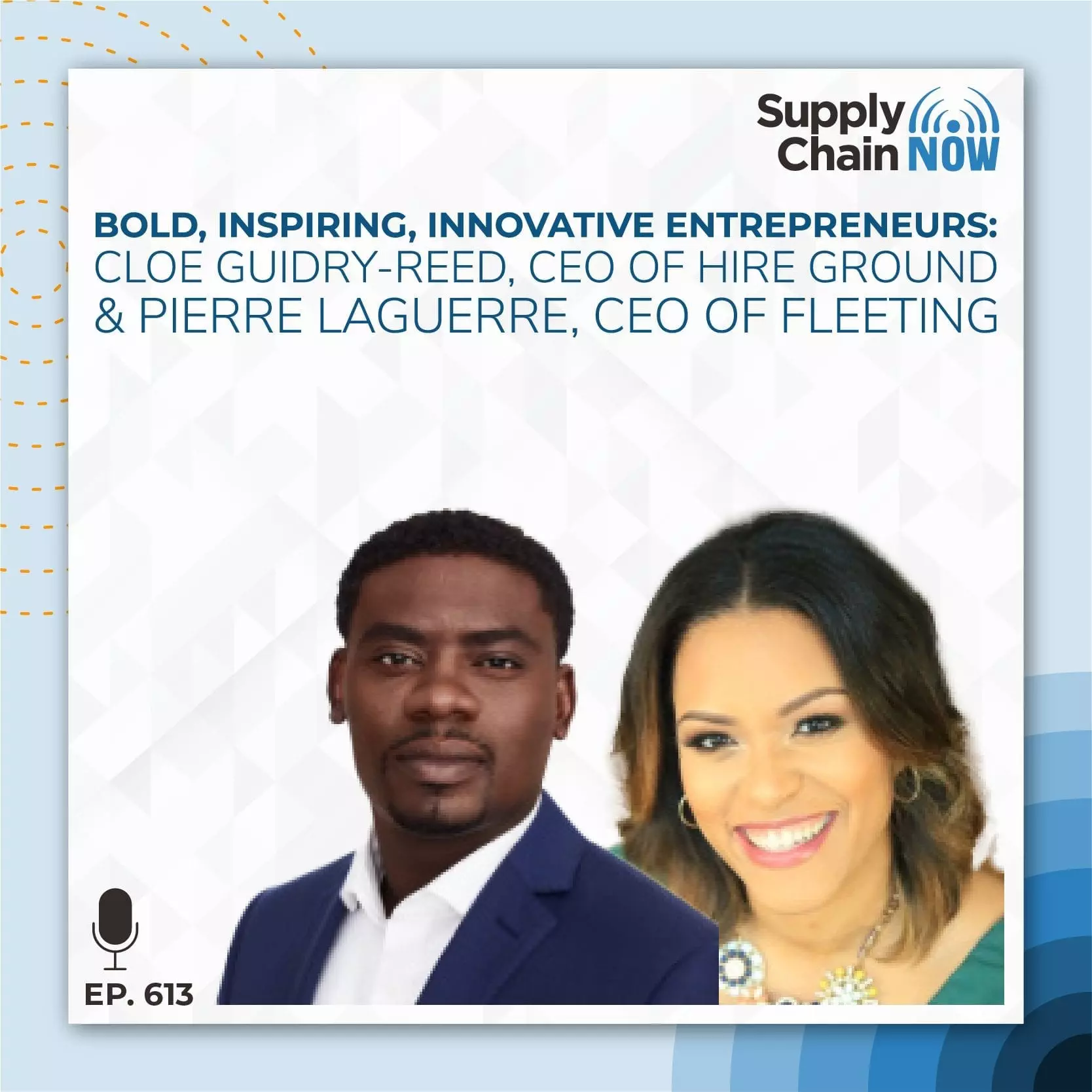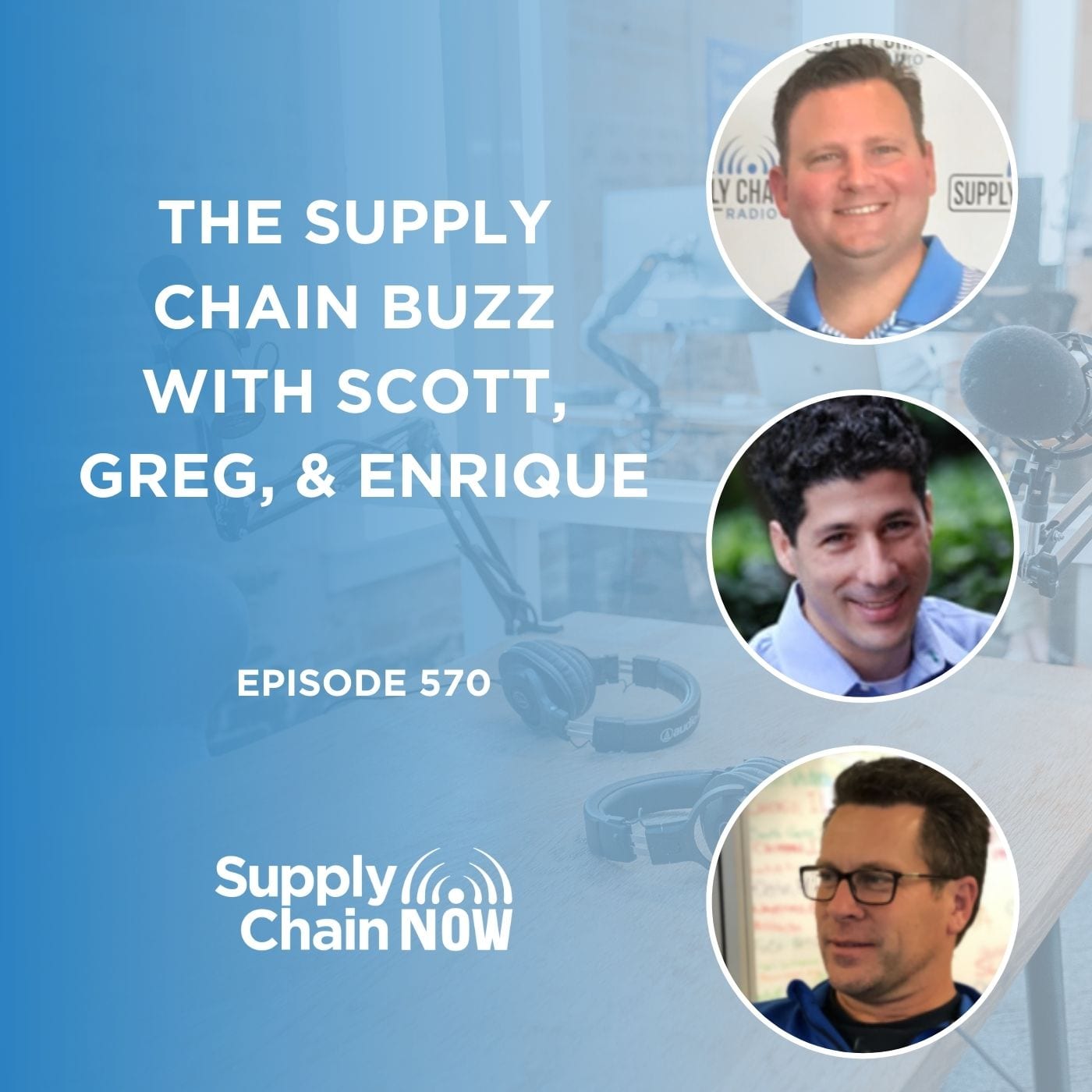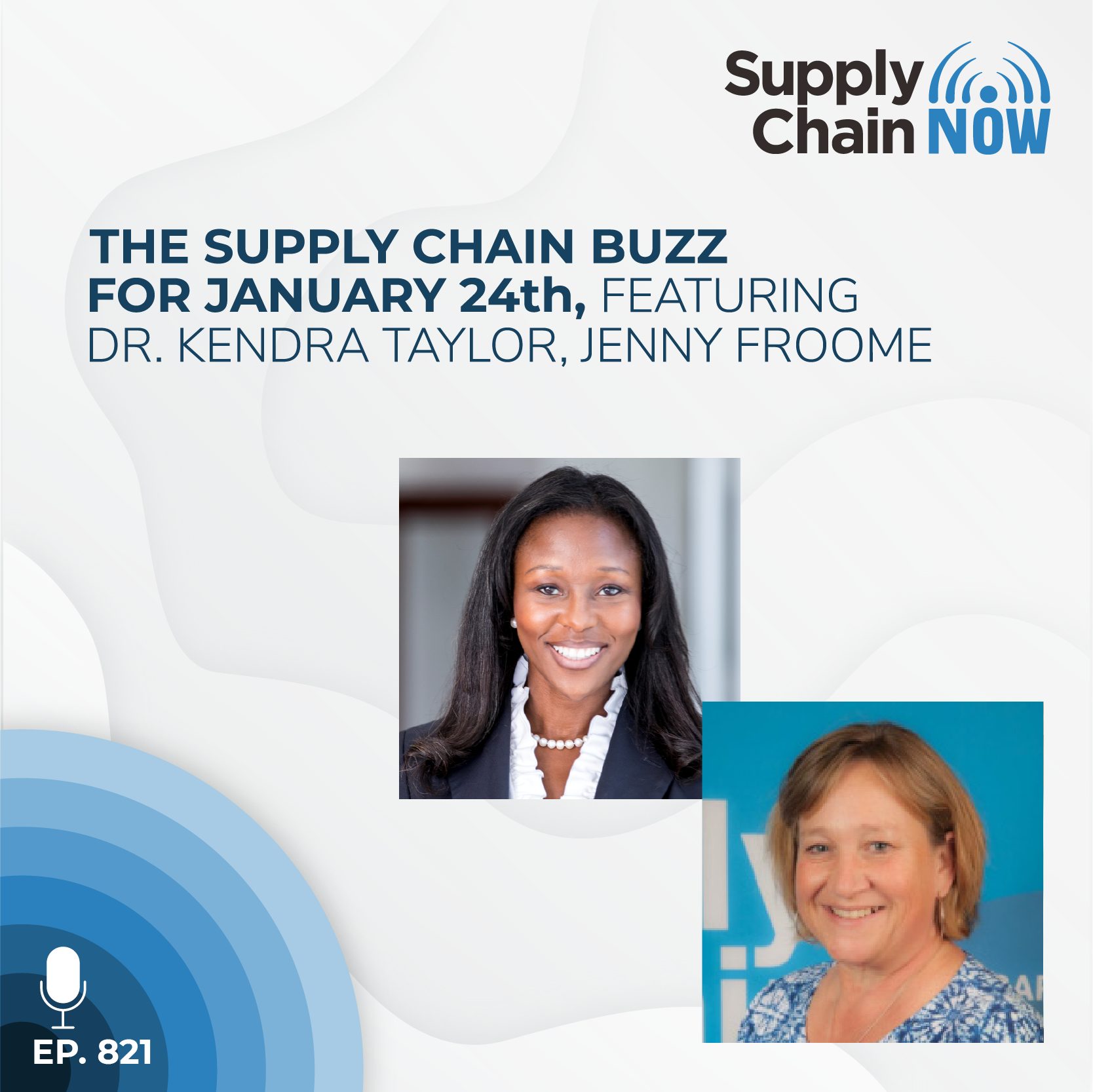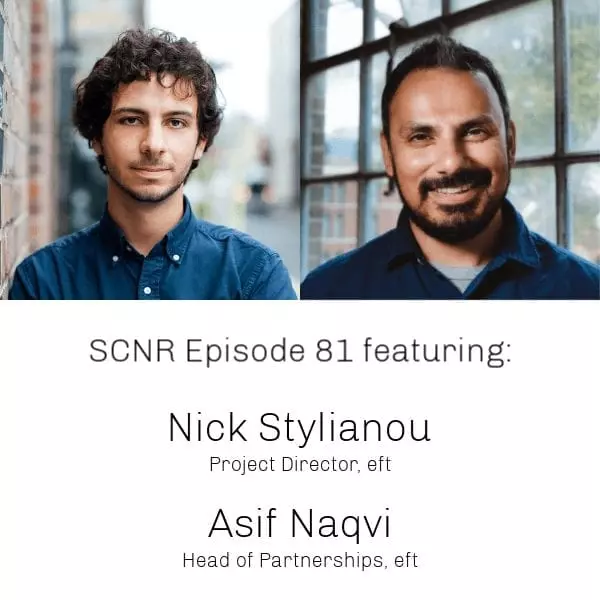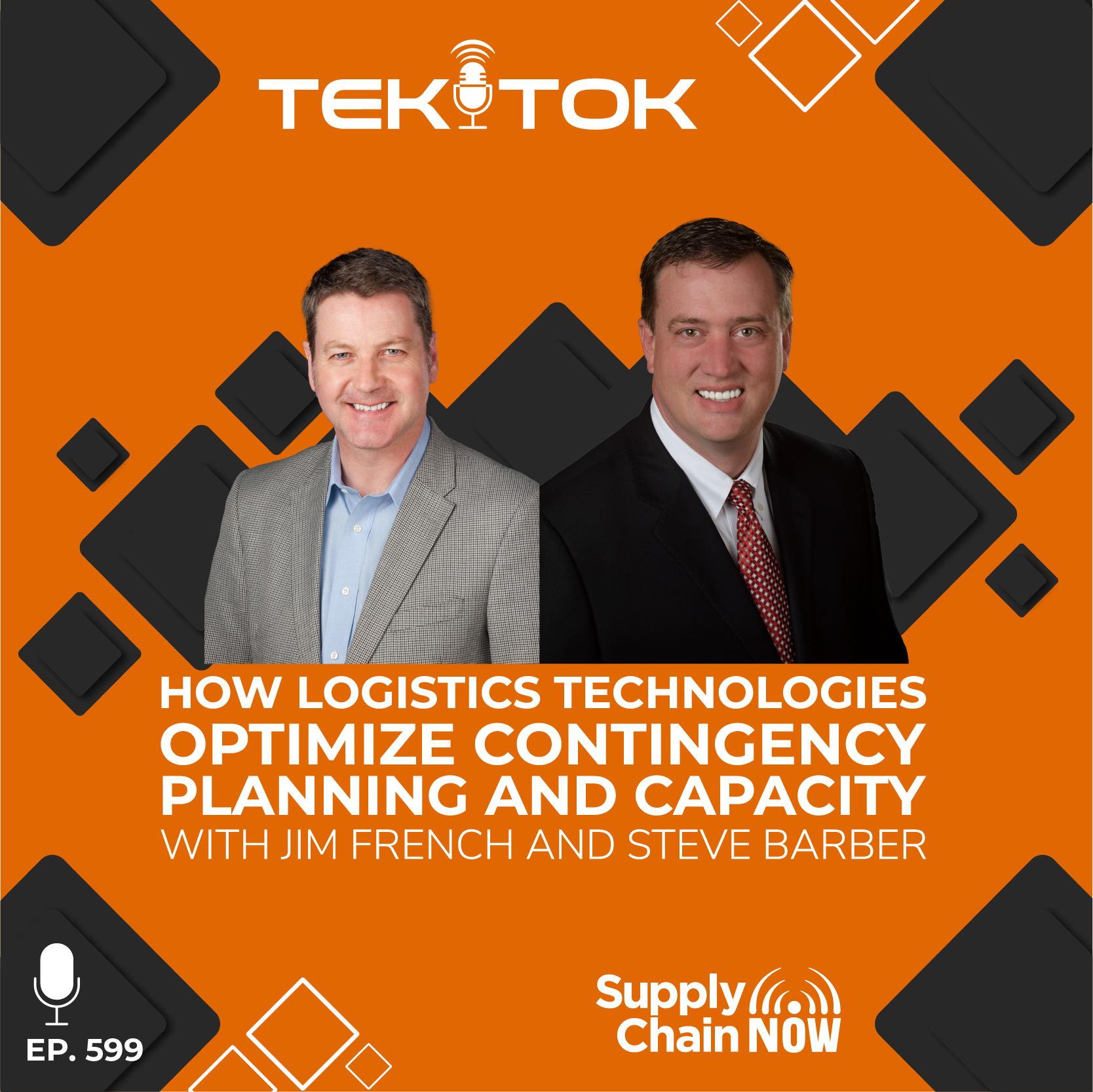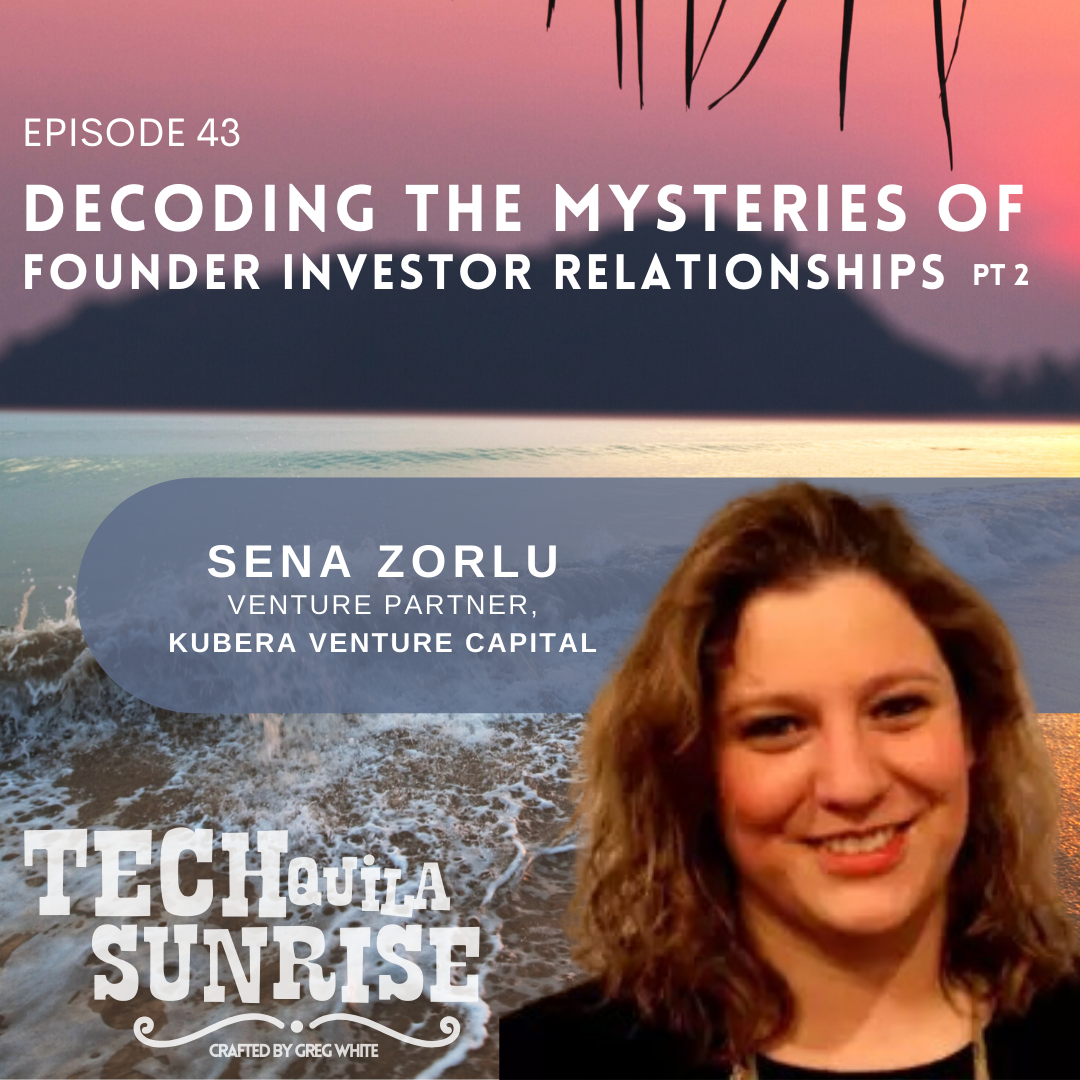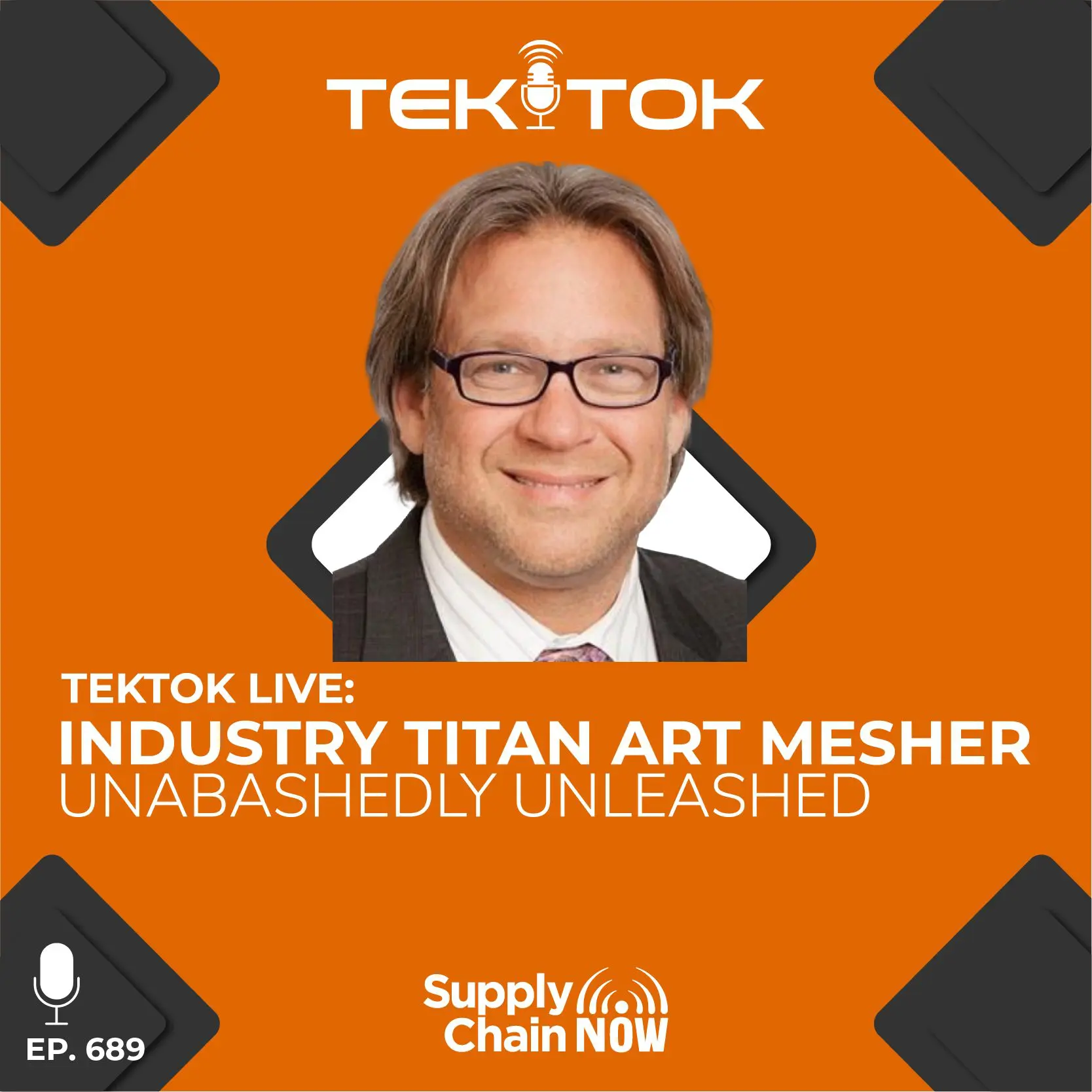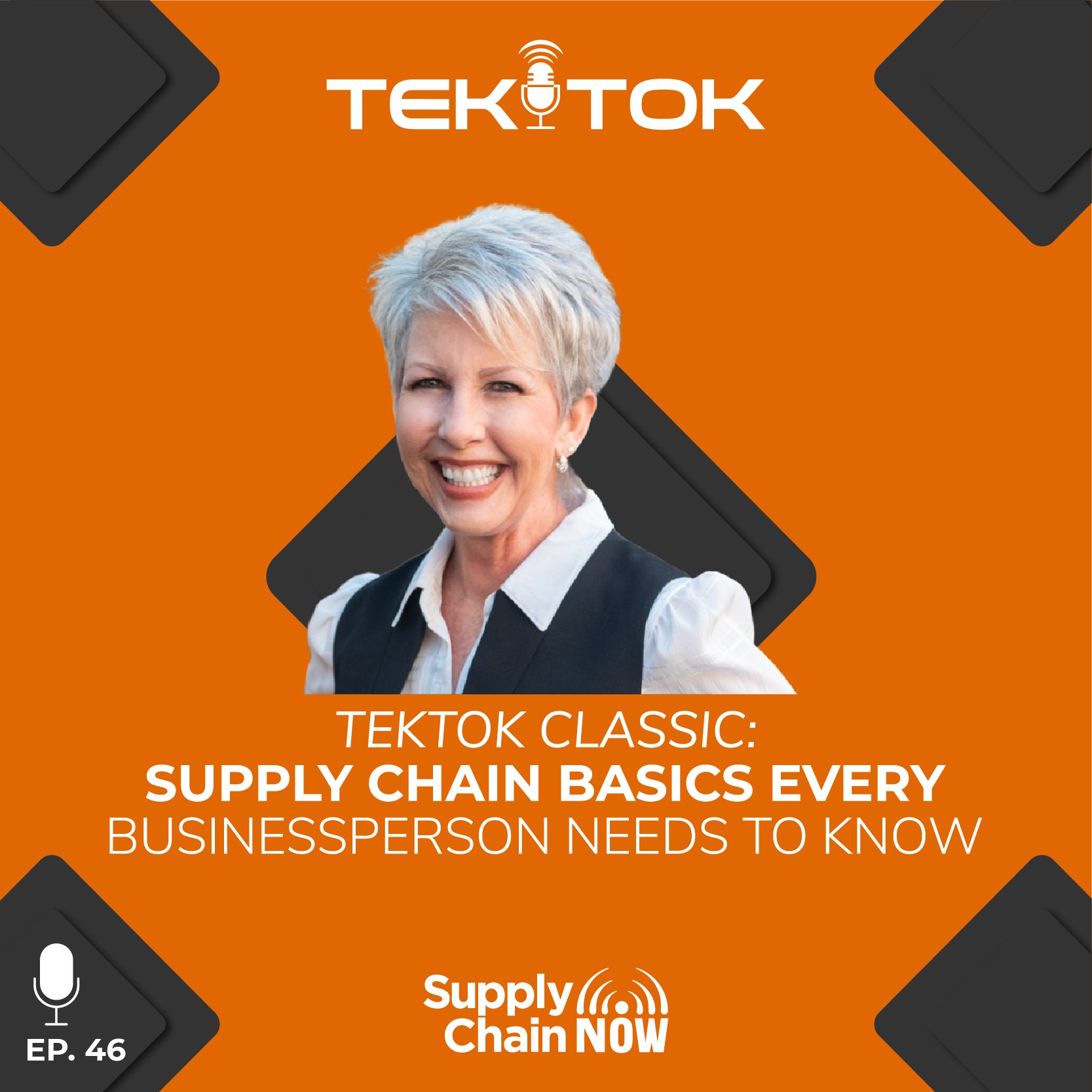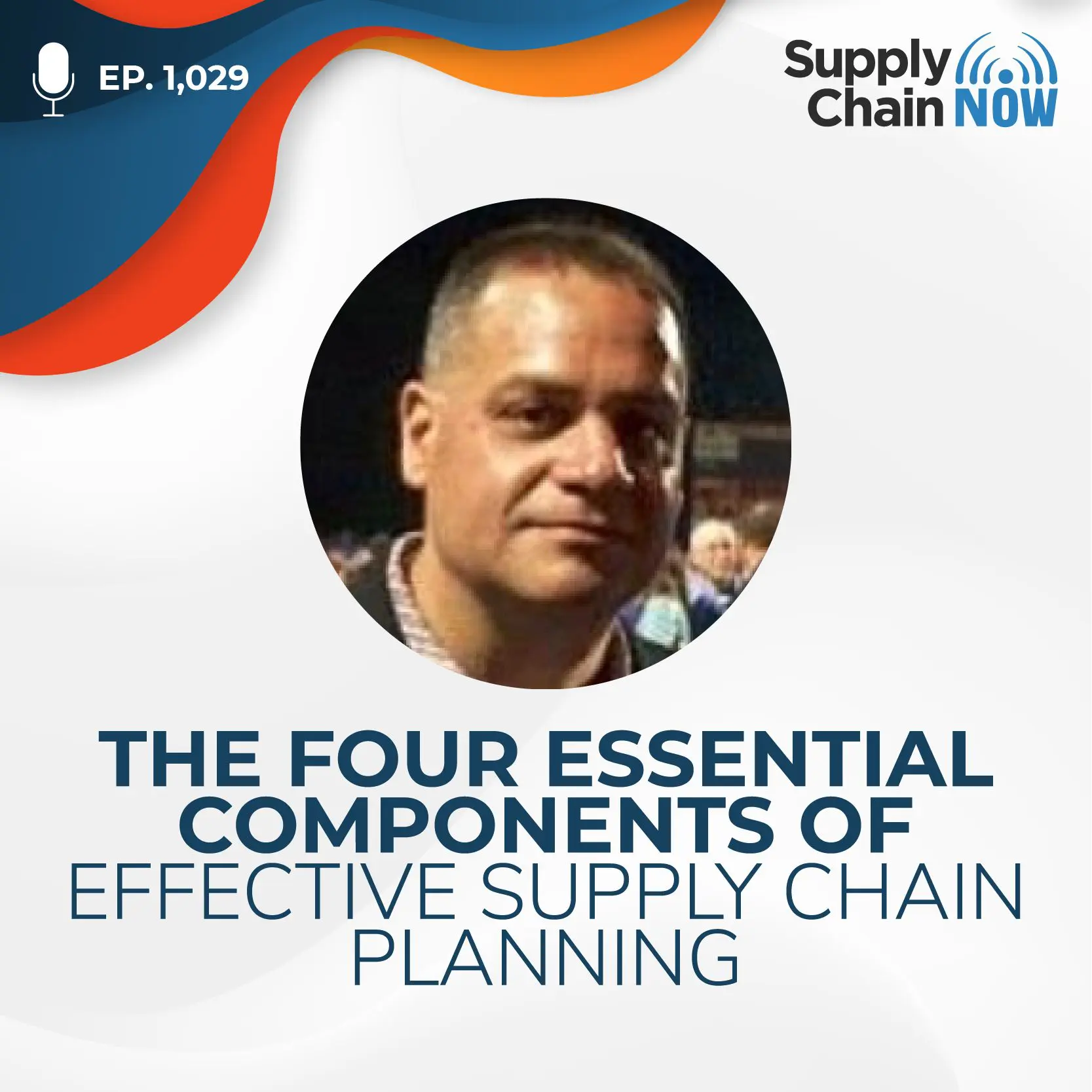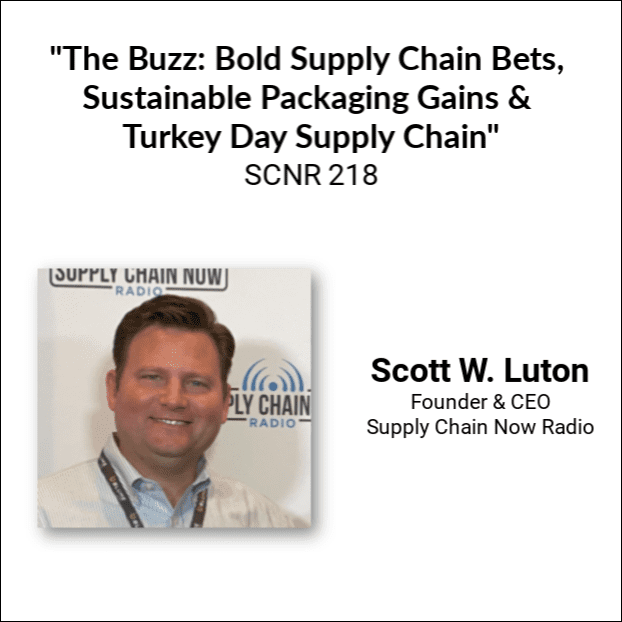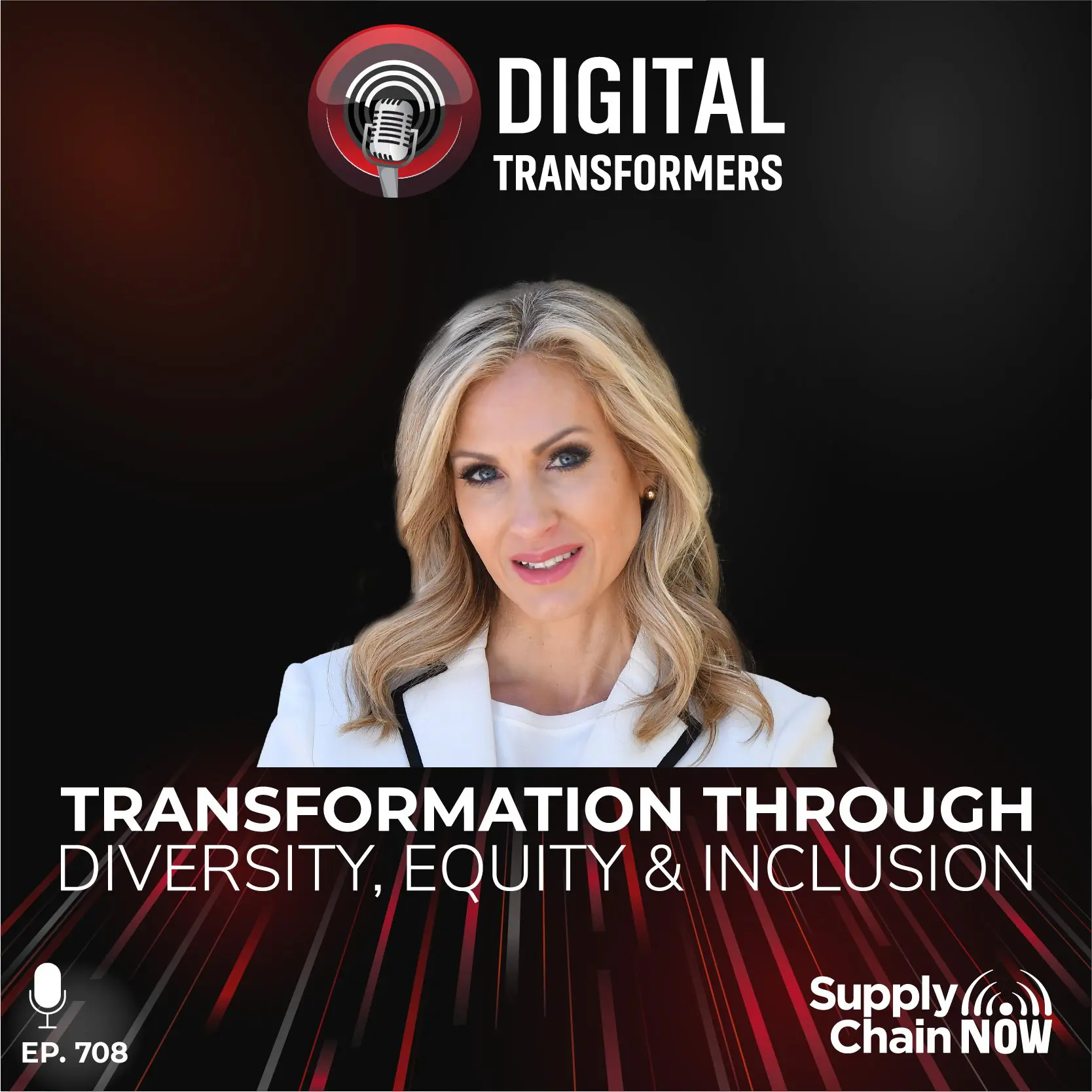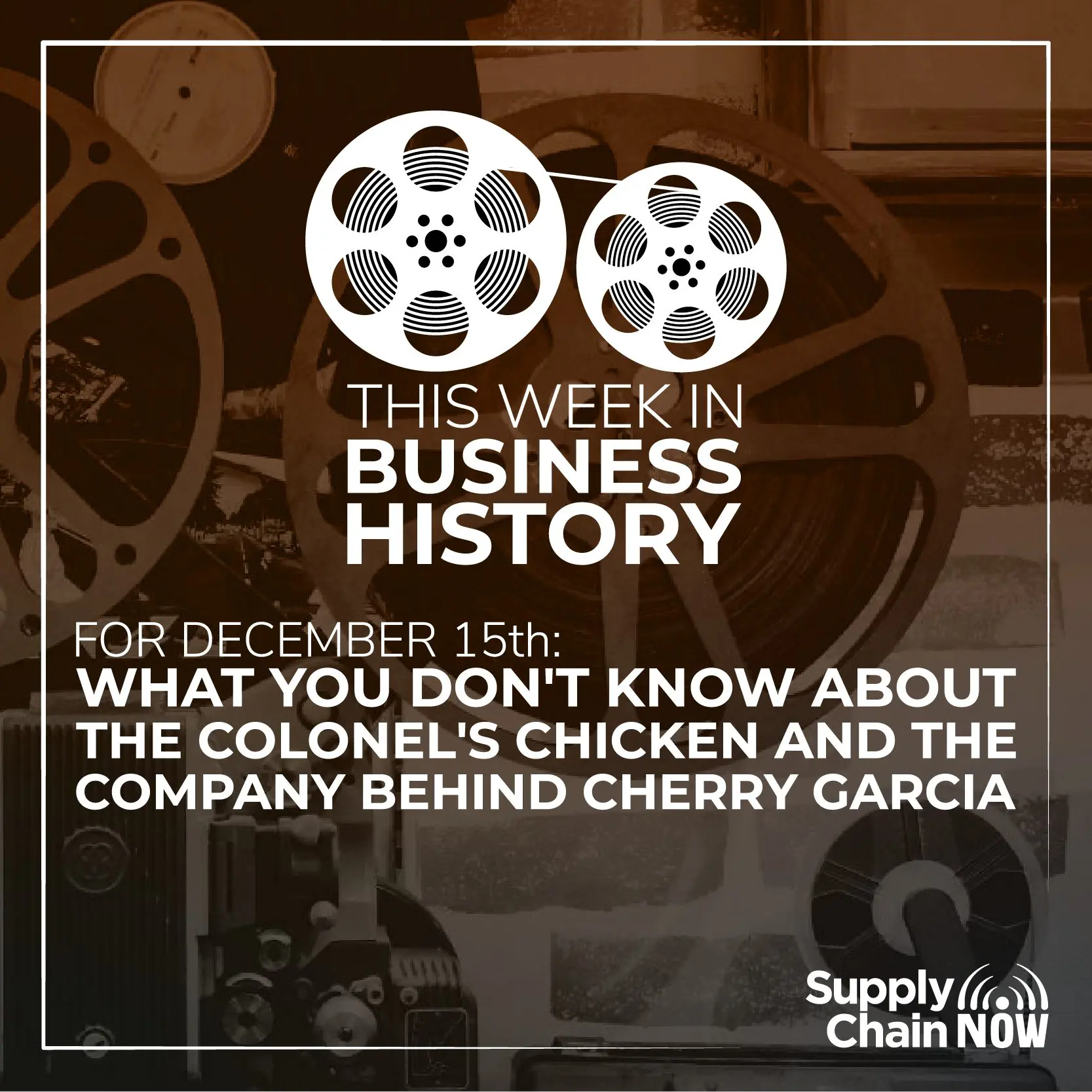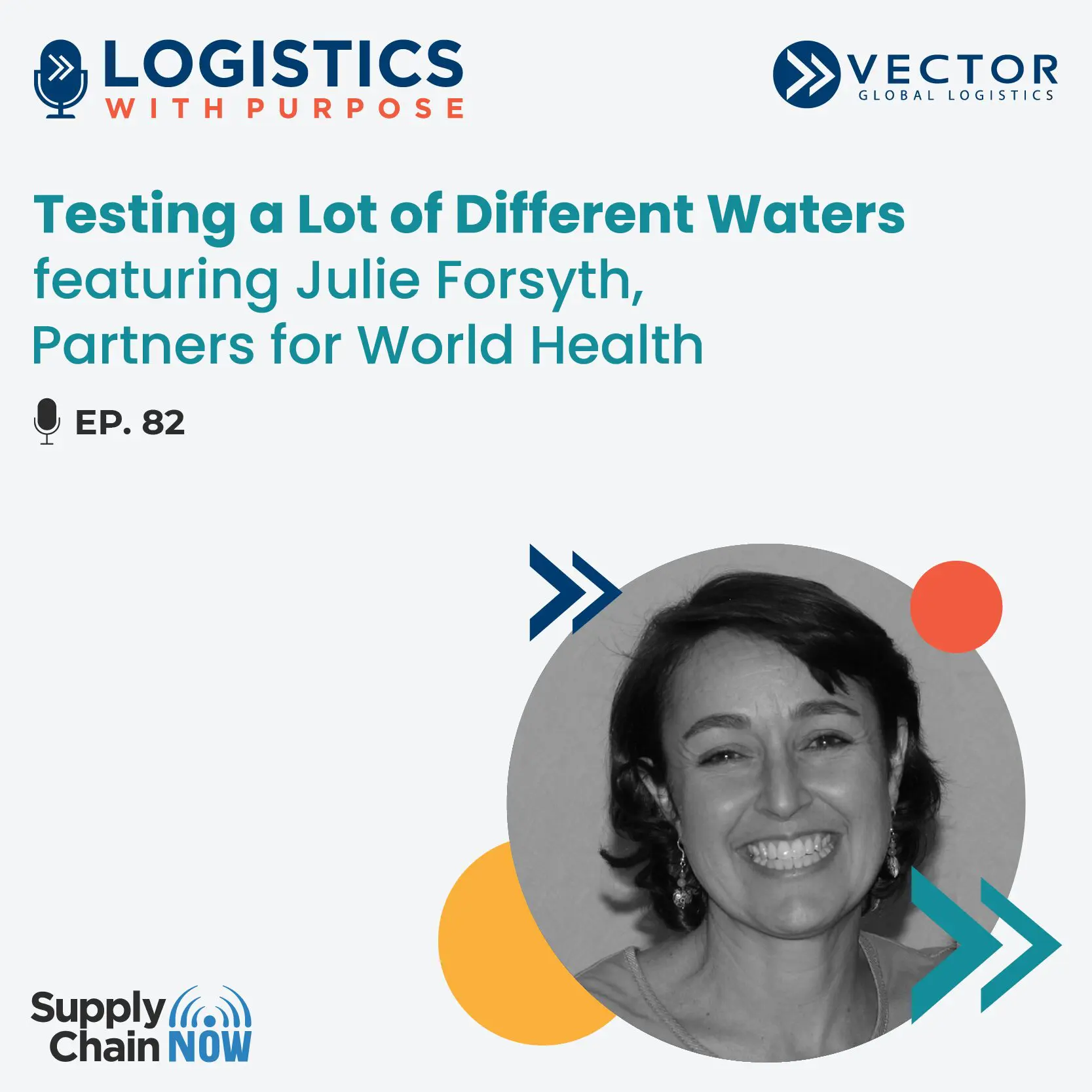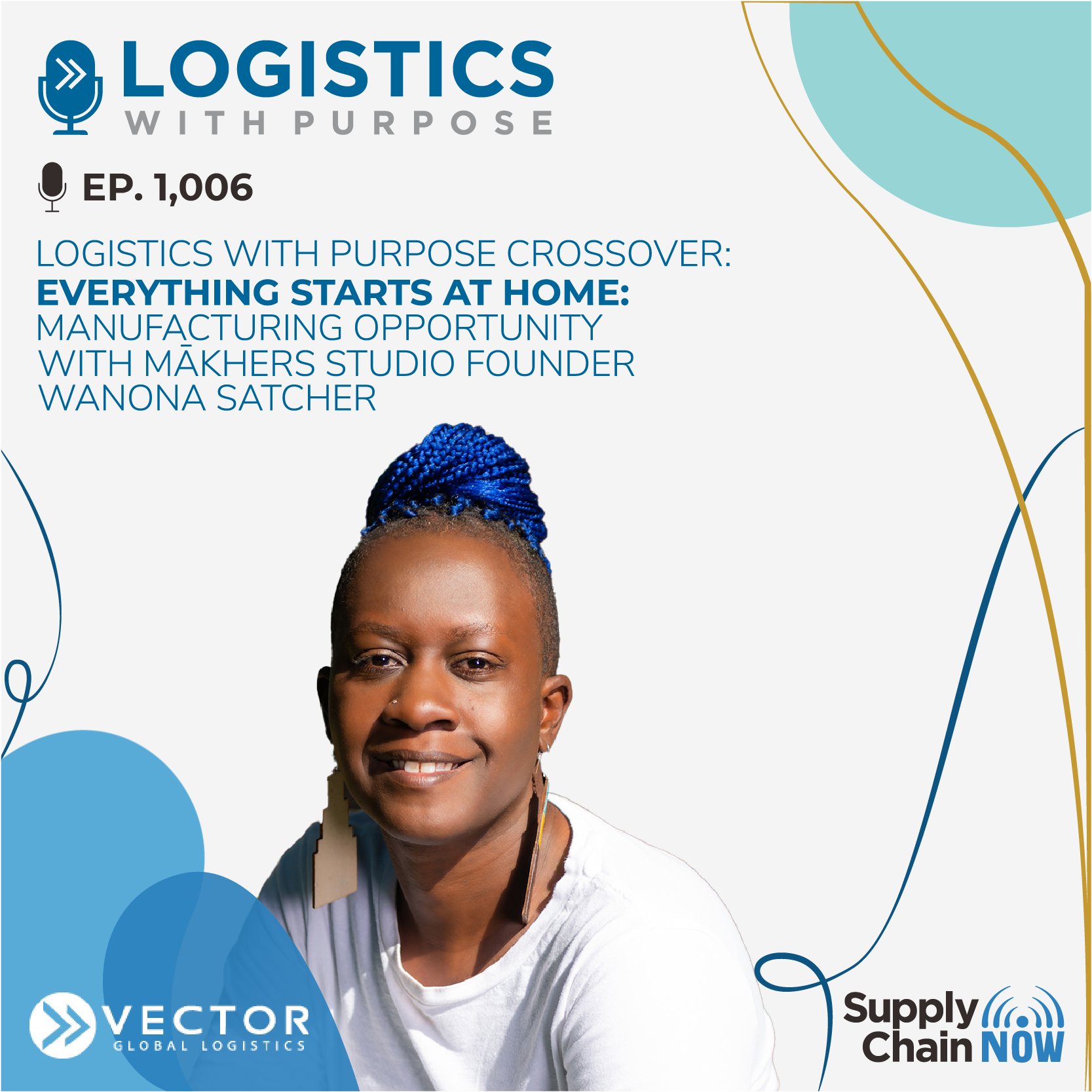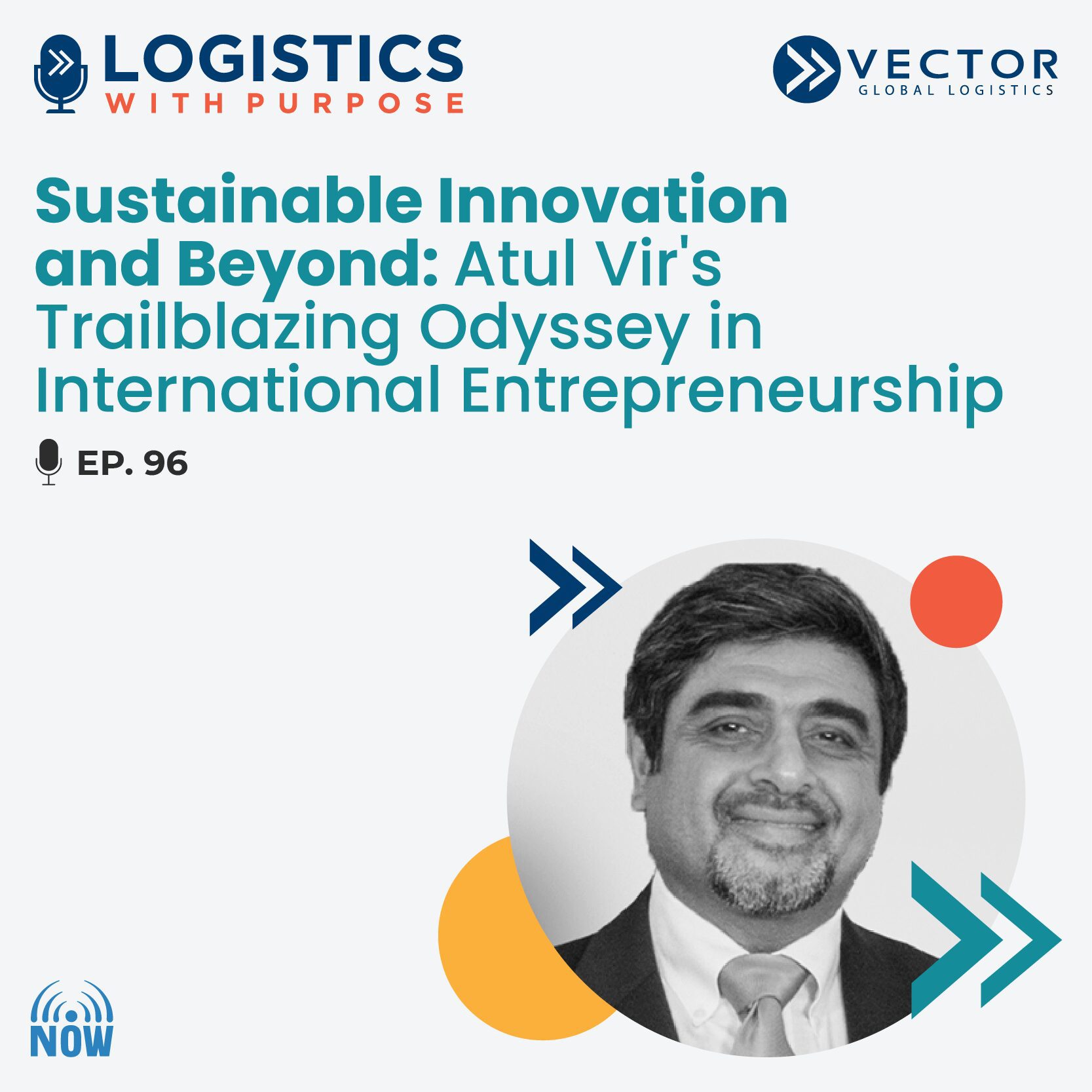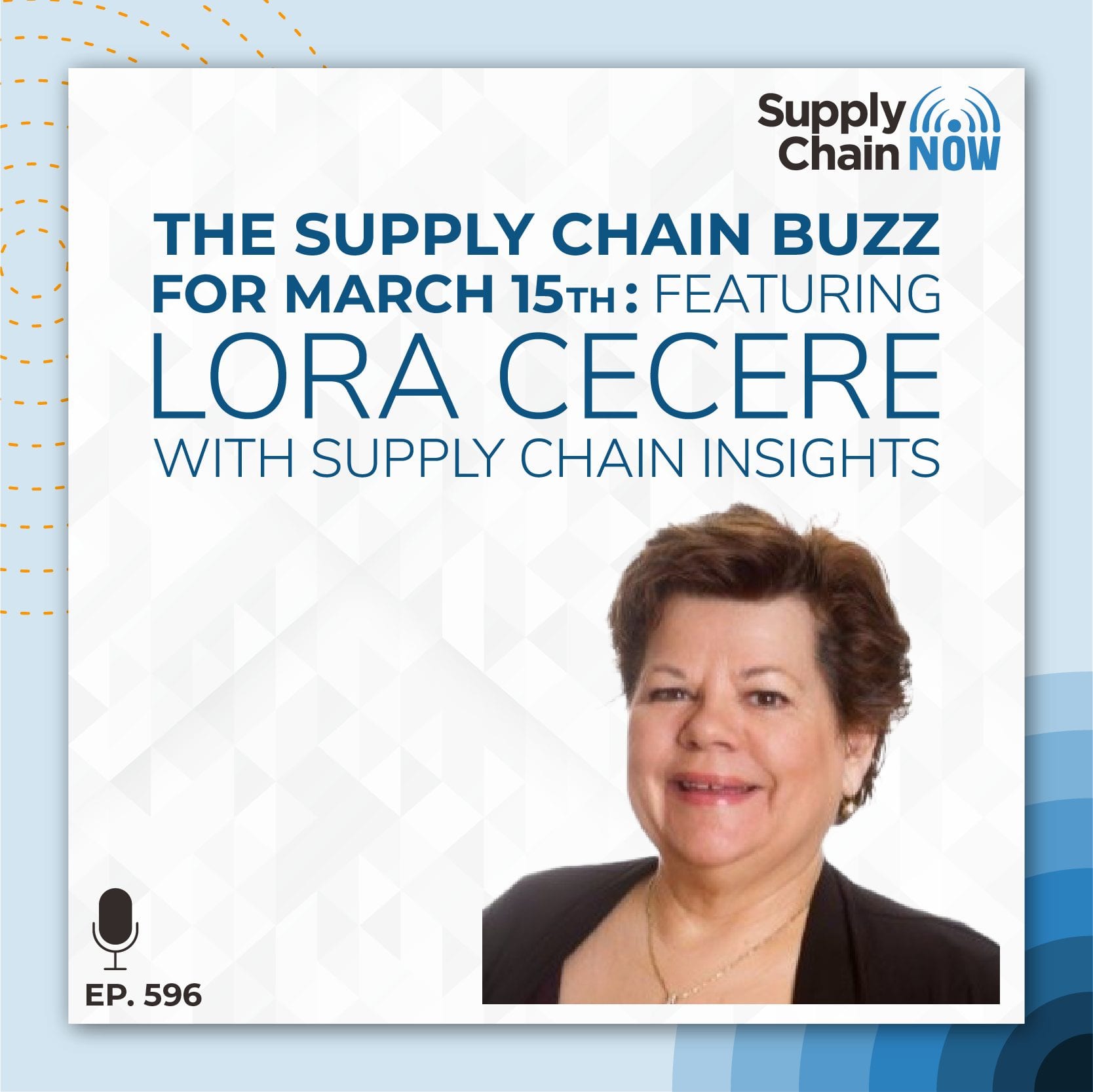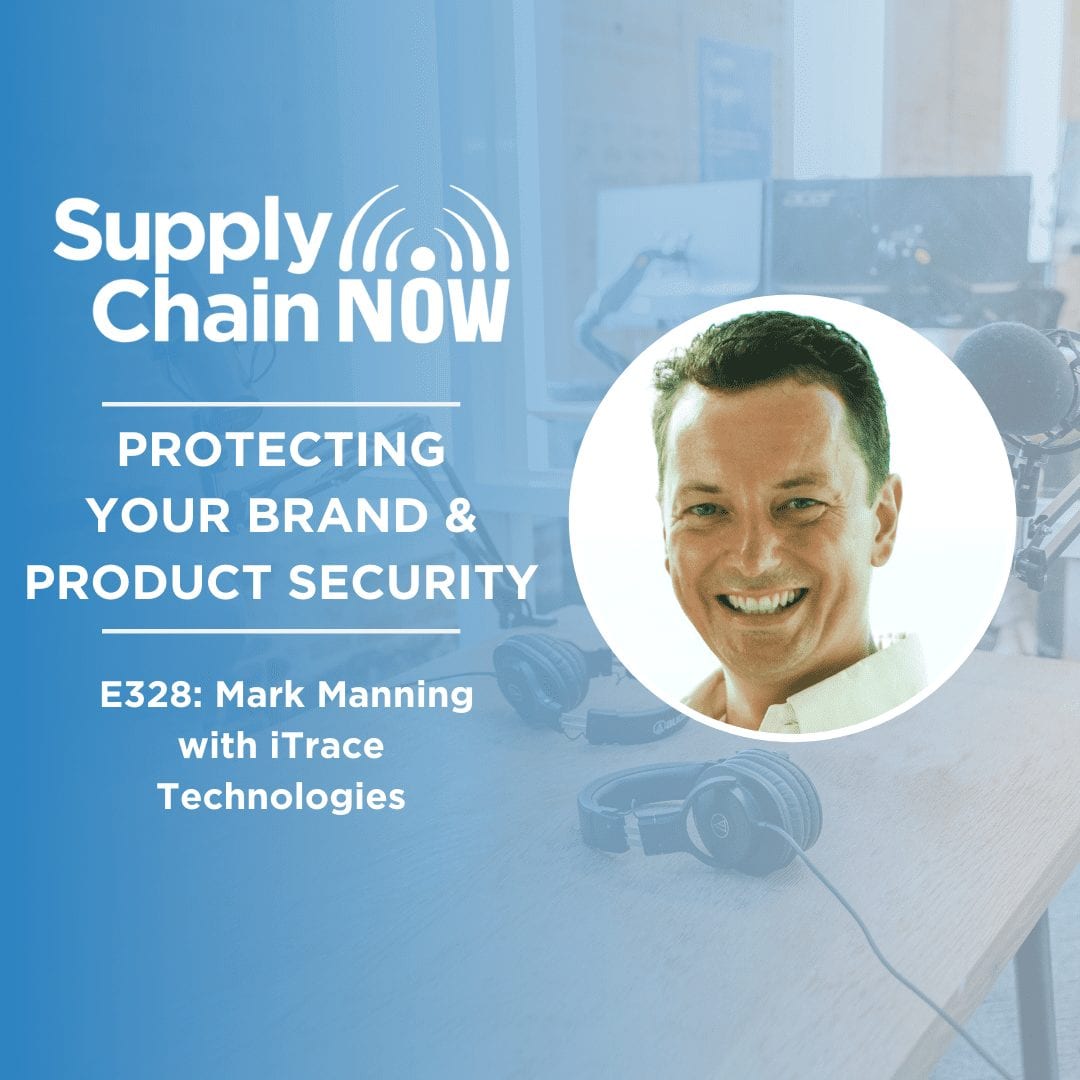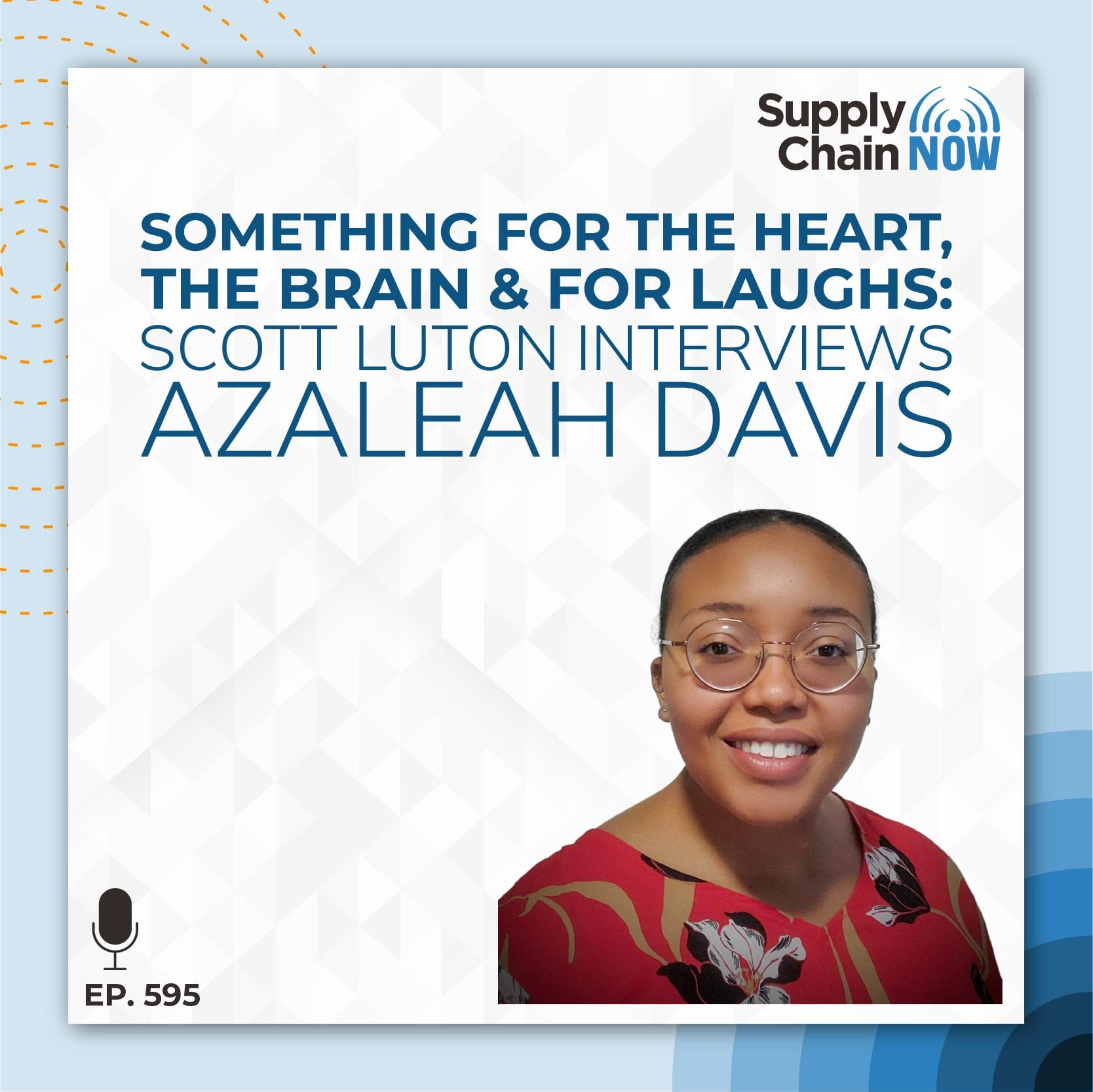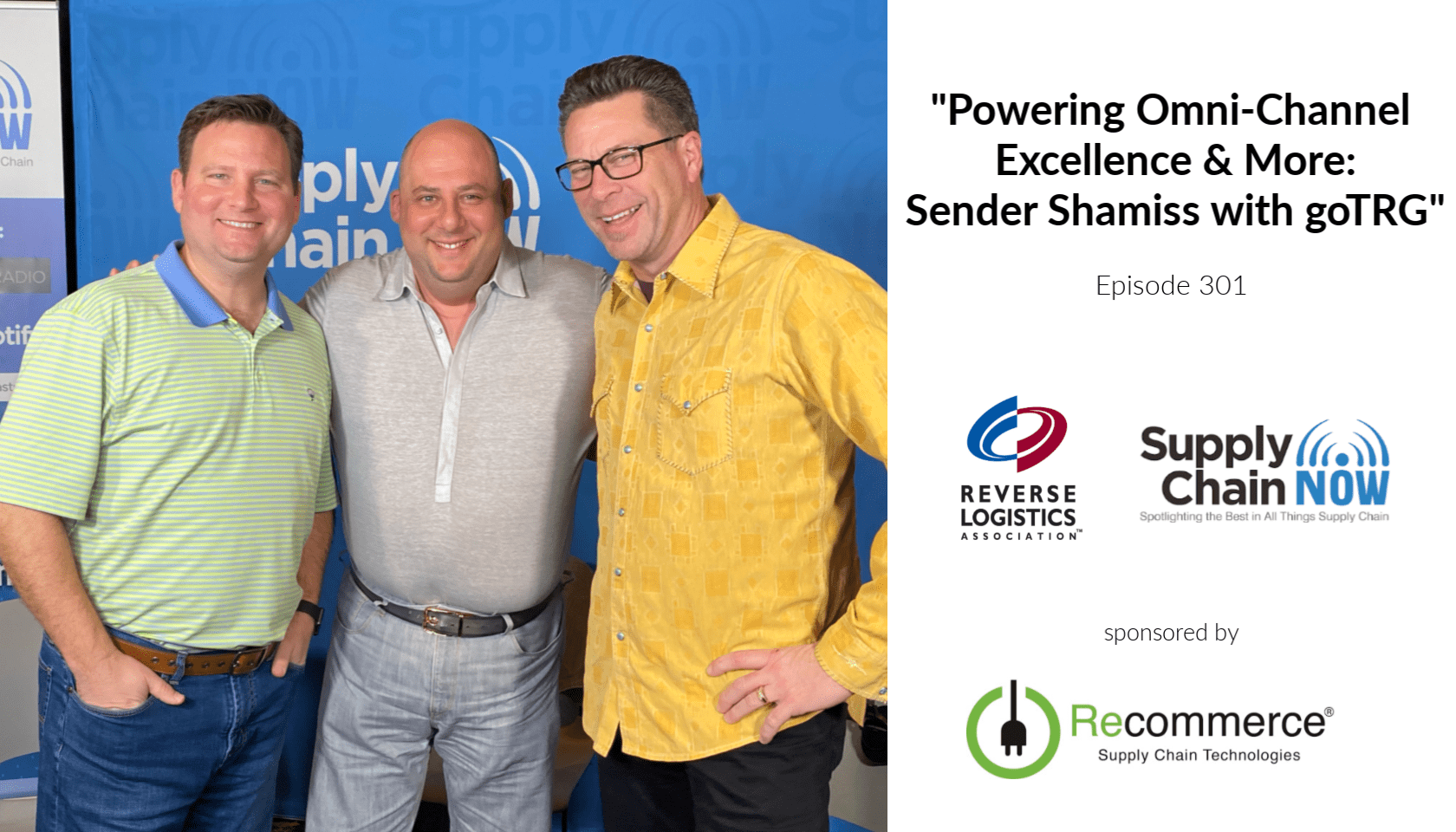
Episode Summary
On this episode of Supply Chain Now broadcast live from the RLA Conference & Expo in Las Vegas, Scott and Greg interview Sender Shamiss with goTRG.
Episode Transcript
[00:00:05] It’s time for Supply Chain Now Radio. Broadcasting live Supply chain capital of the country, Atlanta, Georgia. Supply Chain Now Radio spotlights the best in all things supply chain the people, the technology, the best practices and the critical issues of the day. And now here are your hosts.
[00:00:29] A good EFT new Scott Luton here with you once again on Supply chain. Now welcome back to the show. Today, we’re not coming to you live from Atlanta G-A. We’re right here in beautiful Las Vegas, Nevada, home of the reverse Logistics Association Conference and Expo. The center of the universe for all things returns in reverse Logistics at least this week. I’m joined by my fearless co-host Greg White supply chain adj. serial supply chain tech entrepreneur and trusted advisor. Greg, how you doing?
[00:00:58] I’m doing great. How are you? Well, fantastic. Nobody asked you that ever, ever and asked you how you’re doing. I’m about eight and half. On a scale of one 10, that’s pretty good. Yeah, that’s better in a lot of people walking around.
[00:01:10] Well, we love this week. What? Yeah. And talking with some of the brightest minds in the industry so that that doesn’t get your juices going. I’m not sure what will. Let’s make sure folks know listeners podcasts where they can find us.
[00:01:24] Yeah. They can find us on Google podcasts. I don’t know why I’m doing them first lately, but they feel like they need some prompts. Apple podcasts, Spotify, anywhere really that you get your podcasts and YouTube. There you go.
[00:01:37] Good. Be sure to subscribe. You’ll miss anything. Again, we’re going to continue our interviews with some of the leading thought leaders and leading thought leaders in all things diverse, Logistics, retail and Supply chain. And looking forward to our guests here today. Yeah. So with no further ado, Synder Chamas, CEO of Go Tarji Center. How are you doing now? But how are you doing? Fantastic. And glad you’re here with us. Thank you for the woman who that so little quick sidebar.
[00:02:09] I mean, how are you? Wait. I want to ask you there. That’s what he see. No. Nobody ever asks how you are either. A, we all wear a hat.
[00:02:18] Right. And we are guests focused here at Supply chain now.
[00:02:21] So no one asked me how I was gonna change this. We had to change.
[00:02:27] As we know, we were talking with Tony Serota Center and he told us that we would be remiss and he’d give us a C for our overall rating of our programing here at our offer. We need five stars. Yes. If we didn’t get you here on the show, it’s very flattering. Were your ears burning? No.
[00:02:45] Did you write him a check? I’m not surprised. Tony’s amazing. We’ve had a religious group for years and years, well over a decade. Really? Masia puts together an amazing show. I agree. Truly passionate about reverse Logistics. He cares.
[00:02:58] And that is to a person. That is what we hear. That’s what we feel. Yeah. Here. No doubt. Because it for him it is. He’s on a mission to change how we’re versus just X and how returns and spread the good news of how companies can get better at it. Right. Yeah. All right. So we’ve heard good things about Go Tarji. Before we talk about your company and talk shop. Let’s talk more about Senator Shamas, the person. So. So where were you born or raised? Give us give us the skinny on your upbringing.
[00:03:28] I’m an immigrant of many countries. Okay. I was born in the Soviet Union. I was born in the 70s in a small little port city called Kaliningrad. Okay. Immigrated from the world. I then my parents immigrated, defected, whatever you want to call it, to Israel and then stayed there for like four or five years. Then from there, they came to the U.S. I think it was eighty six. Giuliani nobody wants to live in New York, in Brooklyn, pre Giuliani. That’s where I learned how to speak English.
[00:03:57] I think watching Thundercats on TV forget the Rolling Thunder gal I know how to say is is thunderstruck.
[00:04:06] I know from there we moved to Canada after about three months of being in New York. Thank God. Amazing place to grow up. Roban Toronto, Canada. Oh. Until recently. Until about a decade ago when I said enough’s enough. I cannot handle the cold. And I moved myself and the entire infrastructure of Tarji from from Canada to Miami and live in Miami.
[00:04:29] Nothing’s better than. That’s quite. Yes, that’s quite the true contrast for us close to the beaches possible.
[00:04:35] But there’s a lot of people in Miami like that that go from a very, very cold place to Miami, specifically because it’s subtropical.
[00:04:42] I bet you get a lot of calls during the wintertime from your old friends in Toronto.
[00:04:46] I get a lot of visits, actually see more people now than I did before. And that’s the irony of it. You think you move somewhere warm and people are just gonna go away, but you find funny and funny how they find you more quality time.
[00:05:00] All right, so switching gears from kind of personal to professional, you talked about moving go to Prague, to Miami before you became CEO of Go to Prague. Give us a sense of what you did prior to that role.
[00:05:12] Stayed at home a lot. No. So my career started really. And as a kid, I loved anything to do to those. You take computers apart, pre-Internet. I used to run a bunch of b.b.’s is just kind of Sheer software. China was a pretty big hub for you know, I knew a lot about technology. And then as I grew up, I spent my time kind of figuring out how to code and how to put things together. Eventually I started working on school, of course, did a lot of computer science stuff, dropped out. Couldn’t handle the the waste of time.
[00:05:46] I felt that was at that time. I have some regrets, but I mean, overall, I think I did well. From there, I started working.
[00:05:55] Just doing a lot of systems pre Y2K, Unilever and Manulife Banks, just from place to place, kind of bouncing around, doing a lot of tech stuff. It was easy to get paid, easy to manage big teams. Working with data and and lots of hardware, it was pretty rewarding.
[00:06:13] I like you very well rounded from the technology perspective.
[00:06:17] Yeah, from the technology perspective, I really am. I am. Somewhere in the 90s, I found a bunch of sellers that I did some kind of offshoot work for. There were some liquidation product. They helped him establish some online presence, helped him a little with our systems and kind of got hooked. I got intrigued. I’m like, what do you guys do? Like, well, we buy returns and resell them. And for me, it was pretty amazing at eye opening. I’m like, what are you talking about? Water returns.
[00:06:45] And I found reverse Logistics. And that’s where I am till this day.
[00:06:50] To give us a sense of when you found the industry. Give us a sense of that timeframe.
[00:06:54] Well, roughly, for me, it was 2001. It was in Canada. It was a lot of those small companies selling for terminal Tronox coffee shop. It was acquired later by a BestBuy. Yeah, most of these companies would buy product from them from Jacobs and the US, which was basically Wal-Mart returns. They bring the products into Canada. They do some basic low line plug and play and they’d retail them. There was nothing on the Internet. A lot of them would kind of come to our sources. Can you provide a solution that allows me to check an item?
[00:07:25] And I don’t think it was even called checking an item and it was simple scan and get the stuff online while it sits on my site that was stuck in it. Get the stuff online. And that was that was basically all and I think it was the pre-disposition engines and all the rest of the stuff we’ve built today.
[00:07:41] I founded a company called Killzone, which was primarily a software company. That was at the time of eBay. That was when eBay was super popular. It was an eBay marketplace platform. It’s familiar to similar to channel advisor. Similar to market works. Zulfi, all the big names back then did this multi-channel sales was called Keel’s who I exited kills around 2005, sold majority shares. I still have a tiny bit and they’re still operational and do their thing. And I started kind of looking at the supply chain piece of it. I was by no means a supply chain person. My entire background was technology. So looking at it from a different perspective was what was refreshing to the industry and to myself. I think it was what was unique. I eventually got into the Supply chain piece. I had established a relationship with Jenko, with Herb and my current partner in the business, Peter Kaveri, who was the V.P. of marketing for Jenko at that time with Bob, who was the CEO of of Jenko Marketplace, and they had asked if we can create some sort of solution for them, which was a plug and play drop into the buildings. That does co-located refurbishing, which we did at that time for a few of their clients think Amazon was one of them. We did some offshoot, our high end deep SKU items and it was in around 2006 we started working down this model. I did it while we were living in Canada. I established a little facility inside one of their buildings in Ohio and the rest is history.
[00:09:24] Yes, the rest is history. Well, so let’s Greg White.
[00:09:28] Let’s dove in to get to Prague. Yeah. So it sounds like you co-locate with with some of the liquidation or reverse use end enterprises. Okay. So tell us a little bit about what go Tarji does today.
[00:09:40] So today we have 15 locations in four countries. About 2000 teammates and the largest retailers and manufacturers on the planet are our clients. We provide basically fully managed solutions and with the SAS umbrella and underneath it is the supply chain and the commerce or the e-commerce side of it. We believe in this, I guess comes from my background. The hardest piece here is always picking the side. There’s there’s your Silicon Valley commerce, e-commerce guys. There’s the SAS guys and then there’s the Supply chain guys. And I think the hard part is differentiating between those industries and understanding that each business is run differently. The problem, the big issue in our industry is that the solution that retailers or manufacturers require is a fully managed solution that encompasses all three. It requires a play. It requires the e-commerce play or e-commerce play, and it requires supply chain play. But most reverse businesses out there don’t do all three. They do one of the three on it. Most of the large enterprises are not interested in outsourcing to 1/3 P.l. And then getting another country and managing this entire relationship. They really want to build a very viable, fully managed solution. And even if they are looking for one piece of the puzzle, the hard part is is really consolidating the different the different realms and the different pieces of the industry into something viable. I call this the umbrella and I think we’ll get into a little bit a little bit later. But for us, our business model is a fully managed return solution.
[00:11:16] Got it. cradle-to-grave. Got it. OK. So. We you know, we talk a lot about roles in the company CEO role could be different. Right. CEO to different tech companies and the role was distinctly different in both. So tell us a little bit about what a day in the life is.
[00:11:37] It’s I compared to The Matrix, if you ever seen the part in The Matrix where you get shot at. I think where where Neil got shot at the first time out of that helicopter. He ducks. He cannot Dodge’s he doesn’t get shot, but he gets wounded and he falls on the floor. Every day is like that. But he fired back and fired. He said. He eventually figures it out. I have a few interesting analogies for for business.
[00:12:01] Once business gets to a certain size, it snowballs. So I think all of us, when it snowballs and say, wow, it’s amazing. The problem with snowballs, they come only in in in three forms. You can have a stagnant snowball, which means you’re building it on a flat surface. When you roll a snowball on a flat surface, when it gets big enough and roll it anymore stuck. You need help. You need other people. And that’s where a team is really important. If you roll it uphill when it gets big enough, guess what rolls back on wheels down, crushes you and everybody else around. Yeah. So that one’s a bad idea. And rolling it downhill is probably the best one out there. Problem with rolling downhill, you can’t really control where it goes. You can nudge it. You can pull it. But once it gets big enough, it’s control that you.
[00:12:43] Yeah. Love it. That’s fantastic. Also. You know, I love asking people this question if I’m if I am walking down the hall in my business, right. And and I’m somebody who needs you. You know what you guys do? What. What is the pain that I’m feeling or what? Key words or you know, or questions or comments are going through my head. Well, look, other than profanity, I mean, what what?
[00:13:13] Let’s get let’s look at the industry as a whole. And in 2019, approximately 400 billion dollars to research. Yeah.
[00:13:21] Four hundred billion dollars with $100 billion retail value worth of returns uniting the recovery. Anybody know what it is? What do you think? The industry standard recovery, nonperishable non automobile for that same four hundred.
[00:13:33] We heard it’s like 10 percent.
[00:13:35] I really love about 15 percent. Yeah. So if you look if you look at our enterprise Plug’s think we have more of this data than anybody on the planet, just simply as that we deal with. I think we do about 2.5 million items a week out of all our buildings, just ones that we touch. Never mind. Never mind what goes into the entire equals, right. Of the of the buildings that we we provide software for. But think about it like this. Going back to the number itself, 60 billion represents 15 percent recovery. That means 85 percent, 340 billion go to the trash.
[00:14:04] It costs $150 billion of supply chain fees to operate it to handle that $400 billion worth of returns. So really, first of all, it’s it’s a $450 billion problem and a 340 billion dollar loss, which is close to half a trillion dollars. You take that 60 billion that you’re recovering and compared to 150 billion that it cost you to touch your asking yourself why it. Right. JACKLEY And I think that’s the global 50000 macro kind of question that most retailers, manufacturers are stem cells. Of course, they’re not asking it for half a trillion dollars worth of product. They each have their own problems as they walked on that hallway where they actually ask themselves. And this is where our solution is unique. I think that’s how environmentally friendly is the process. How efficient is the return process? What data privacy challenges do they have? Why are certain products returned? They need third parties to handle them. What can they do with themselves? What happens after return returns? Accepted. Where does it go and why does it go there? That’s most of the stuff. Problem is, they ask for it in the silo. Ask one question. They ask one of those questions. One question is not enough to answer that. You have to go back up there that 50000 foot mackerels will you have to be that 50000 foot problem says $400 billion. We’re covering 60 billion. There’s 150 billion in Supply chain costs.
[00:15:25] Why are we touching this product to get a set of all those questions that you just read that that that and probably more of what companies are looking for when it comes to returns and in reverse Logistics of the whole that whole operation, what is there one of those questions you get more often than the others that one sticks out like a 20.
[00:15:44] It depends on the company. And I think I think if you’re you’re dealing with a manufacturer and it’s maybe a manufacturer manufactures some piece of technology that’s current and they’re in the news a lot. Maybe they’re more concerned about circular economy and the environment and data privacy. Maybe if you’re dealing with a big box, a massive retailer, maybe they’re more concerned about the supply chain piece, the transport piece, because that’s that’s the department that’s running the the the reverse Logistics piece of their business. It really depends on who you’re are. If you’re dealing with a clothing retailer or the primary clothing, you’re dealing with bracketing, you’re asking questions of why can I get why can’t I get this product to my supply chain back into my supply chain fast enough before the season ends. Now it’s all about who you’re dealing with. So from a lot of people don’t know about Tarji, we’ve been kind of quiet. We’ve been around for a while. We’ve been quiet. We’re fully self-funded. So we don’t go out there raising money. We operate in the black and invest all our dollars back into the business. We love this business. We are super, super passionate. We’re a collection of some of the most unique, brilliant individuals on the planet doing an amazing job, trying to trying to solve the problem of returns. And it’s not really all about the dollars and cents more about solving a problem for us.
[00:16:55] So all those all companies have those questions, have those issues. They may have meant different measure because of the kind of industry that they’re in or because of the level of recognition that they have as a company. Right. But I think that really goes to the theme that we’ve discovered this week is that reversed Logistics isn’t a thing. It’s not you can’t solve the problem by saying reverse Logistics UPS understand every aspect of what you’re describing there to be able to solve the reverse Logistics problem.
[00:17:27] So for us, this you hit the nail right on the head. I think that a lot of people view versus Logistics as one of these questions I read off to solve it like you would if you had, you know, a papercuts. You can’t put a Band-Aid on reverse Logistics. You have to look at the entire ecosystem. What does the supply chain look like?
[00:17:43] Let’s do you guys do at the end of the day, let your show right as to supply chain so it’s not a reverse. Logistics Sheer.
[00:17:50] The problem starts with the supply chain. If you look at that, the onset of what this industry is, it doesn’t start with the return, it starts with the purchase of the product. That’s where I from the manufacturer or the. Buy that retailer. And that starts with a contractual obligation, that contractual obligation is based on something a UPC, a product catalog, something that collection of data is key to everything that happens afterwards. So if we take an umbrella approach and this is what we’ve done this year, we’ve revamped what we call a fully managed solution. We say the catalog sits at the top. Then we say the catalog has five basically elements to it. They’re all about equal. If you look at the catalog and they’re linear, you first need a catalog. It’s the most important thing you can have. Call it a smart catalog called intelligent catalog. Call it whatever you want. And add what you called blockchain to it. I don’t care what you do with it. It’s a catalog that starts by ingesting products with pictures, descriptions, dimensions, pricing, whatever it is that encompasses an item right afterward. You need to contract piece that that fiduciary duty between the buyer and the seller. That contract piece today basically says I’m going to sell you a thousand widgets at $1 apiece.
[00:19:09] It doesn’t talk about the return, right? It doesn’t talk about the lifespan of the item. It doesn’t talk about the next contract. It talks about that one specific purchase. It’s more of a PR or an invoice. It’s nothing more than that. Well, it has to be intelligent. It has to have some elements that go and speak to that to that returns portion of it. If I’ll go back to the states before I continue this. Returns are about twelve percent of everything purchased. OK. But the supply chain costs represents another 8 percent. So if you take that, there’s a 20 percent augmentation on the retail price. You could pass it on to consumer. You can keep the dollars and sense as a retailer or a manufacturer. But the bottom line is that you’re blowing the process by 20 percent or the price of the item just by by not fixing this extremely complex problem. But this fixable problem. Yeah. It requires an equal system approach. The next piece of this catalog on top smart contracts is after that. Then there’s the plug in to the Web site or the or the P.O.S. system. We call this reverse. But it’s more than just the reverse. It’s an in-store app. It’s a plug in for an in-store. It could be standalone.
[00:20:16] It could go straight into PUAs. If you go right into a Web site, you know, you’ve seen Shopify attempt to create returns, plug. You’ve seen a.S.A.P, attempt to create them. Yeah, Manhatten, many other companies have attempted to create them. The problem is and where they’re not used is because the system that handles the catalog, the smart contracts and all the rest of the pieces of the puzzle are not cohesive Ryder different systems. They don’t speak to each other. That’s why without a fully managed solution doesn’t work. You’re solving again one piece of the problem. It’s one Band-Aid. You’re not going to solve it all. After the reverse, it’s a supply chain piece. I think you need to have a robust supply chain piece. Whether you use the three P.L.O., you’re doing it yourself. You have to be able to do things like you have to be able to do things like data, wipe sanitation. You have to be able to have that ERP functionality to know, should I touch something? Should I not? And and that is that’s not typical to a retailer. Supply chain retail supply chain chains basically bring the power forward product. That’s all it is. Forward. Bring it in. Put on a shelf. Get it out. The supply chain for four four.
[00:21:20] Reverse is actually much more complicated. Supply chain for a reverse is repair. It’s vendor disposition. Sanitization is inspect.
[00:21:29] There’s a lot of stuff really old answering all that’s right. And remanufacturing, believe it or not.
[00:21:35] So we are the largest refurbishes of computers outside of computer companies on the planet. We do refurb for some of the largest brands that you’ve ever heard of. So I can’t mention what someone can say about 100000 computers a month. Hundred thousand senior location. Yeah, we do about sixty thousand one hundred thousand t.v.’s a month about oh, we’re probably the largest free forward in every category on the planet. But to get good at these things, you really have to get better than the manufacturers in most cases. Think it will d.o.a. If d.o.a.’s about 1 percent dead on arrival rate for computers 1 percent you sell 100000 units. What is that? A thousand units, right?
[00:22:17] Would you say it’s OK to have a thousand? You tell me, does that mean math questions? And this? Yeah, I use deer and a handler is supposed to be asking me the. Yeah. If you take a thousand compute. Right. And, and they’re d.O.A. Out of 100000 thousand. So that’s OK. It’s an acceptable it’s an acceptable. One percent is one percent is acceptable.
[00:22:35] Half a percent is acceptable is half a percent acceptable. Refurb. What if half a percent of the hundred thousand computers that we refurbish end up with data privacy issues with someone else’s pictures or e-mails near a crowded seftel anymore?
[00:22:48] Right. Right now it’s not acceptable.
[00:22:50] And it’s a much it’s a much more difficult process and it’s much harder to solve. And even the process of supply chain that remanufacturing much harder than it is for in in a regular supply chain, it’s actually more difficult. The manufacturing process on the Sheer economies of scale.
[00:23:07] I mean, the numbers you describe in terms of how much the supply chain costs there is in reverse. Sheer economies of scale would tell you that no individual, regardless of size, no individual company should undertake this themselves because the cost is way too high to do that.
[00:23:24] I think retailers, it’s it’s very difficult. They have to learn a new skill. And I think that’s why they love the phone managed solution fully. If you do just a piece of it, if you’re just a software company, you say, I’m gonna plug this in, I’m going to give you this and you can do the supply chain itself. It doesn’t work.
[00:23:38] You know? I think another reason why outside partners and providers have Evros and prevalence is, is it’s difficult. What you’re describing the big picture as well as some of the nuts and bolts next is knows it takes savvy individuals willing to make decisions and willing to manage and source different channels. It is a 24/7 job. It’s a business. It is a business upon itself. And we know with with that what we’ve. Is consensus is this is just a statement, a fact that in light of this war for talent era, when it is tough enough, just peeling off one aspect of that and hire a great person to just drive that piece, there’s so much opportunity here. Why not use an out there?
[00:24:27] We love to see new businesses. We love to see innovation. I love to see the startups that sprung out of there. A lot of the people that work with an organization came from startups around these businesses. We’ve invested in tons of businesses, retail arbitrage businesses. We have one of the largest online B2B marketplaces, which is also among the most direct liquidation dot com. We have a ton of business that we invest in around this industry and it’s just amazing to see the ideas and concepts that people come up with.
[00:24:58] All right. So moving right along before we because we want to pick your brain on on kind of what you’re seeing in the bigger picture when it comes to global India in Supply chain. I don’t want to leave the Go Tarji story too soon. So what else can I finish?
[00:25:12] Yeah, please. Yeah, I think you’ll enjoy that. So I’ll go real fast. Yeah.
[00:25:15] We start with catalog. We said smart contract. Then we said that plug in into the Web site or the store. The supply chain piece we just talked about. And of course, the record murse being able to resell this product is key to all of this because the end of the day, we commerce doesn’t only mean Richelle means putting it back into that supply chain. If you’re a retailer, you want the product back on your shelf.
[00:25:36] One thing I can disclose, I think something happened recently. I talked about it doing the NRF. We had we had all of Wal-Mart’s IOW product go through this entire fully managed system and ended up on their shelves in two pilot stores as certified refurbished. And they have a display which I’m showing you in a picture of your audience, Gates. That’s OK. But it looks like this and it looks like a brand new oil was displayed selling iPhones. It’s selling watches. It’s selling iPods in that display. And it’s truly end to end solution because it starts at the beginning of that umbrella with that with that return and ends through the records and watches that item go from from item that’s returned. That may have issues, but ended up fully marketing item and not receiving the 15 percent, but rather receiving 80 to 90 percent on that item. Of course, this is a very high end Ryder, but there’s no reason you can’t get the same types of recoveries. Don’t hold it. We project most retailers big boxes can get to about 45 percent if they if they do the disposition incorrectly with their contracts.
[00:26:42] If they fixed or supply chain the hardest part, those EFT for the last part, the hardest part, the reconciliation fees just for them. Most of these companies, we tell us, are manufacturers have despondent systems. So the P.O.S. system may not necessarily talk. The accounting system, after a while, they go through the whole reconciliation process once a month or once a quarter. These returns can stay, you know, typical returns, about three week process turnaround just to get from store to a return center. So it’s it’s. It needs to be handled much faster. And I think a lot of the systems that we put in play, they got to play nice and sandbox. Yeah, well, the concentration is about being able to reconcilable physically virtual and financial. And I think that’s the hard part. How do you take an item cradle-to-grave and all? That’s the specific item that your return from down to the serial number of that particular item and know that this was the financial result of the entire supply chain, the Europe that touching the store, sending it from place to place and all that good stuff. I’m done with the business.
[00:27:42] So before we go before we go to the future, I want to just confirm something I think you just said. I think you said that as much as 180 billion dollars worth of product could be recovered and re commerce instead of the 60 that’s being about over Daryl about you know, it’s a different.
[00:28:03] Every every type of product, every different category. But I mean, we really we really do an amazing job. We take most of these most of these contracts over. We touch one of these fundamental solutions. The last thing we do is we do this data and we just analyze the data and see what it would look like if we were if we run it through our own supply chain or trying to change the the model that they work on. It’s more consulting from that perspective and we kind of give them an idea of what it is for us. The important thing is look at the supply chain, make sure the stuff doesn’t end up in the trash bin. Make sure that because most of them understand that that’s 60 billion that they’re currently recovering, they’re wasting way more money touching it. The worst thing that we can do is take this stuff and throw it in the garbage. Yeah. So we want them to avoid that. But we also want them to recover more money. Yep. So we’re tasked with the worst job of all.
[00:28:57] And that’s figuring this thing out. Right. I think that’s the hard part. Putting that thinking cap on doing the consulting. We’ve we’ve done studies with some pretty big accounting firms just to make sure we can get yet the numbers, what we need for some of the larger big boxes.
[00:29:10] Right. And you have to create economies of scale. Are you to be able to make money doing that in their stead? Right. That’s why we need 100000 units. Yeah. Yeah. Yeah. Yeah.
[00:29:21] As you’re already touching on, one of the things I was thinking about as you kind of walk us through some of that, is your learning curve on the front end as as ABC company comes to go go to and says, hey, we need help. We need help in in bumpin this figure up of how we handle returns and then what we get back into the system and all that stuff from the 10, 15 percent to at least you said 45, 50 percent roughly for retail. Depends on the point. Say a same, 30, 30 percent. Yes. Perfect. I like that. I like going conservative, too. But I can only imagine the learning curve you have on the front end as you get to another business. You get to know where the opportunity is. You quantified a figure. So in the days of global supply chains and I know you’re working with some of the very large recognizable names, just the learning curve to go through six months, just a pilot phase 3, 6 month pilot phase to collect enough data.
[00:30:20] And then after that, it’s probably around the year, year and a half for implementation. So you’re talking about a two year process to get your supply chain to a place, reverse supply chain to a place where it works, but you need that support of the entire business. In most cases where we take over the entire where we were attempting to create a fully managed solution for that entire reverse ecosystem, it starts by by them coming to us in most cases and saying, listen, we understand you guys do this, we need your help in analyzing it. And they’re very pliable to looking at the entire model where if we’re approaching them, it’s a little bit different. Yeah.
[00:30:59] Agreed. Big commitment for both sides as they kick off that. Yeah. From the pilot and the country assessing into implementation. Okay. So let’s switch. Can we switch gears? Julia. Okay. I’ll make sure. Make sure there’s no more movement. No more math questions. So let’s move into the broader picture beyond go Tarji. Even beyond reverse Logistics as important of returns and reverse Logistics is in the modern global supply chain. When you think of business especially, you think of global end in supply chain management and where we are today and where we’re moving to what’s an issue or two that you find intriguing issue or topic or development or innovation wide open. I think what robotics, robotics?
[00:31:47] I’d say robotics, data management. I think machine learning data science is probably we’ve been concentrating most of our efforts in terms of future like five years down the road. We have a ton of R&D. We have a bunch of systems in different facilities that we’ve tried out a lot that we’ve created ourselves. And from my perspective, forget our business. I just view the U.S. Supply chain as is getting more and more automated every day. And the solutions that are out there are even more intriguing that the ones than the ones that we have internally for reverse. I think solving. And I’m going to come back to reverse for a sec. Solving the problem of handling merchandise, using reverse Logistics actually as is a bigger challenge than forward Logistics. Just like I explained the manufacturing process and the data privacy piece using reverse Logistics as a guideline. It’s much it’s much harder to to to receive returns, not knowing what’s coming in and handle them using automation right then it is forward Logistics simply because you don’t know what you’re getting uteri the size you don’t know it from this more one off. Exactly. You don’t know you don’t know if it’s in a package. You don’t know if it’s in a bag. Those those shoe sorters. Those conveyers. Cross belt Saunders, those autonomous locust bots that are running around. They all need to be able to handle this product. So using using reverse as as a gage for solving the problem of errors actually helps you solve the entire supply chain working backwards helps you figure it out.
[00:33:23] Froome least efficient to mouth.
[00:33:25] Yes. Well, one more thing would get your thought on along this robotics and automation. One things we talk about do a bit. At least every other episode is there’s always a fear of the bots or come in the bottom. CUMINS can take jobs, all the stuff. But what we that the technology leaders and supply chain leaders, most of them that we speak to and get their thoughts on is not if you’re an individual that’s been working the organization and you’re willing to volunteer to learn new things and move into new roles. Reeducating. Yes. Then bonder animations go open.
[00:34:02] We’ve replaced the facility we had in Arkansas. We’ve we’ve put in some soldiers and some automation that’s beyond orders, some pretty cool stuff. And we actually ended up with more teammates, less. We just create an opportunity to be in places you weren’t before. And it takes away a lot of the stuff that we do in this country gets kind of exported. And as we replace our antiquated 30 year old processes with automation, that allows us to bring that in. The people that need to handle that product intellectually, Maureen or white collar bases are required. So reeducating that labor pool from from the jobs they were doing before into a more kind of conducive role to touch that ancillary output that comes out of that scale or the economy of scale is important. I think the jobs do exist. I think it’s just a matter of reeducating the workforce. And going to see pre-knowledge is not going to stop, right?
[00:35:05] Is not going anywhere. That’s right. So, I mean, it’s just a matter of time. We have to figure a way through this. Reed was it’s important for all of us. Your question is 100 percent correct. But, you know, people are going to be around.
[00:35:17] So we have to teach them how to do the jobs that exist.
[00:35:22] All right. So how can our audience learn more about go, Tarji?
[00:35:27] Well, we can go to our site. Then we go. We go we got go to Yahoo! Dot com. We have the liquidation. We have a bunch of bones. But go to Yoji has pretty much everything on there, too. Yeah.
[00:35:40] And you are here, obviously, you’re a big sponsor of the Reverse Logistics Association. Did you present during?
[00:35:49] I did not. I never I never said right on Faroes. Got me doing. She did. I did it. R.F., which was the first time I ever. Big show. Yeah, NRF. I did the 20 minute presentation. It was the first time I got in front of an audience in my life. It was a couple hundred people. I was a little scary. And then this this is my number two, you know, go out.
[00:36:11] Thank you for being down.
[00:36:12] I have true passion, although this is Vegas and you get kind of tired because of the time zone. And I think the dryness here. I I I speak from the heart.
[00:36:21] I love this industry more than anything. And it’s not really about dollars and cents about making a difference in something that we’re passionate about. It’s tough to be passionate about. Reverse Logistics Gates about any Logistics. This is something that that moves us. So I think as a society, again, imagine we’re spending trillions of dollars on our 20 percent waste. A lot of it ends up in the trash. And it’s not how you treat the kind of scenario. It’s about doing the right thing financially and environmentally. Yes. Yeah. This is not about let’s all get in front of a tree and hug it together. Now, this is about let’s make sure it doesn’t end up in a landfill. Destroy the air we breathe and let’s profit. Yeah. Which are both possible. Yeah. Just simply looking at the entire supply chain is the art of the possible.
[00:37:09] It’s there. It’s within reach. But I got Challenger Center Sheer. Industry needs to hear from people like you that not only are experts in in the wide array, but you’re passionate about it and you’re you’re genuine. That’s I’m telling you. So if you if you don’t, you’re good.
[00:37:27] We’ll just play them over and over and over and over and over again.
[00:37:31] I’ll tell you guys some personal I’ll give you a little tidbit. I agreed to this. For me, this is Life 2.0.
[00:37:38] About a year ago, I got diagnosed with what’s it called thyroid cancer. And I went through some pretty crazy surgery. It was a really bad case.
[00:37:49] And if I was like two weeks on and off, I probably wouldn’t be here. So Ferrer’s kind of running me around the country, getting me to do this.
[00:37:56] So this was never supposed to happen at all. I for this or anything, I probably shouldn’t have been around. So this is take two. Reroll, as they say. Yeah, that’s right.
[00:38:05] Oh, man. Good use of it. Yeah, you’re really great at it. Appreciate it. Birgit you are in all the conversations. I’m sure folks are. Gotch lined up for here. Spend some time on supply chain.
[00:38:16] Go to running away to a good vote to do it. No. Yes.
[00:38:19] Sit tight for one second as we kind of bring the episode to a close. Thanks so much. Sit down. Thank you. Yeah, we’ve been talking like guys. Appreciate it. We’ve been talking. Synder Shamas, CEO of Go Tarji. So much passion in this conference. A hero. Yeah. Yeah. Three days, right? Yeah. That’s been a great theme for the day. You’re right. I mean, you know, passion is not good enough because there’s been expertise and been there done that from guest after guest. Yeah. Obsession is required for success. Every guy passion is not enough.
[00:38:51] All right. So as much as we hate to bring this episode to a close, we must. We want to invite our audience. Come check us out wherever you know, we’re on the road. We love these conversations. Come check something person rather than go through event by event. We’re gonna encourage our audience. Go to the events tab and the webinar tab at Supply Chain Now Radio dot com. We’ve got upcoming events from Moad X to the Automotive Industry Action Group AIG to the Association for Manufacturing Excellence A.M.E.. Come check it out on the events tab for our Web site and that quick global interactive forum. Who’s the star of that show?
[00:39:26] You have to tell me who you are.
[00:39:30] Audience is the star of that show. So in March, should we are running a little different unit where we are inviting our audience? Come on. You got me right. Getcha. And we’re not presenting. We’re not. We don’t have great Sugimoto experts. We don’t yet have very good seats. That’s right. Right. Audience We’ll be bringing their thoughts. And they’ll be starring in a starring show and sharing their perspective, really leading the conversation to look for that on the webinar page of Supply Chain Now Radio dot com. With that said, on behalf of Greg White, the whole team to our audience, thanks for joining us. Find us wherever you’re podcast from. Stay tuned as we continue our live coverage of the reverse Logistics Association conference next, but right here in Las Vegas, Nevada. Thanks, everybody.
Featured Guests

Sender Shamiss is the Co-Founder and CEO of goTRG, a world-class returns management platform that helps retailers and manufacturers eliminate financial and environmental waste. He has spent his life perfecting technology in the space of e-commerce and supply chain and redefining the way the industry views distressed and returned inventory. Mr. Shamiss began selling items online in the 1990’s and saw an untapped ecosystem primed for change and set out to create reverse logistics solutions that facilitate higher margins, faster sell-through, and reduce the carbon footprint on behalf of enterprise-level retailers.
